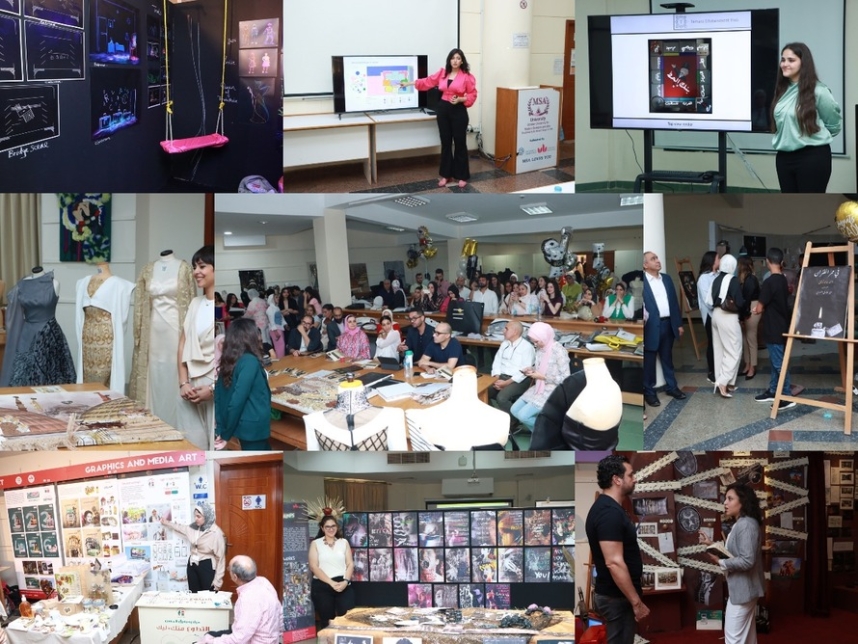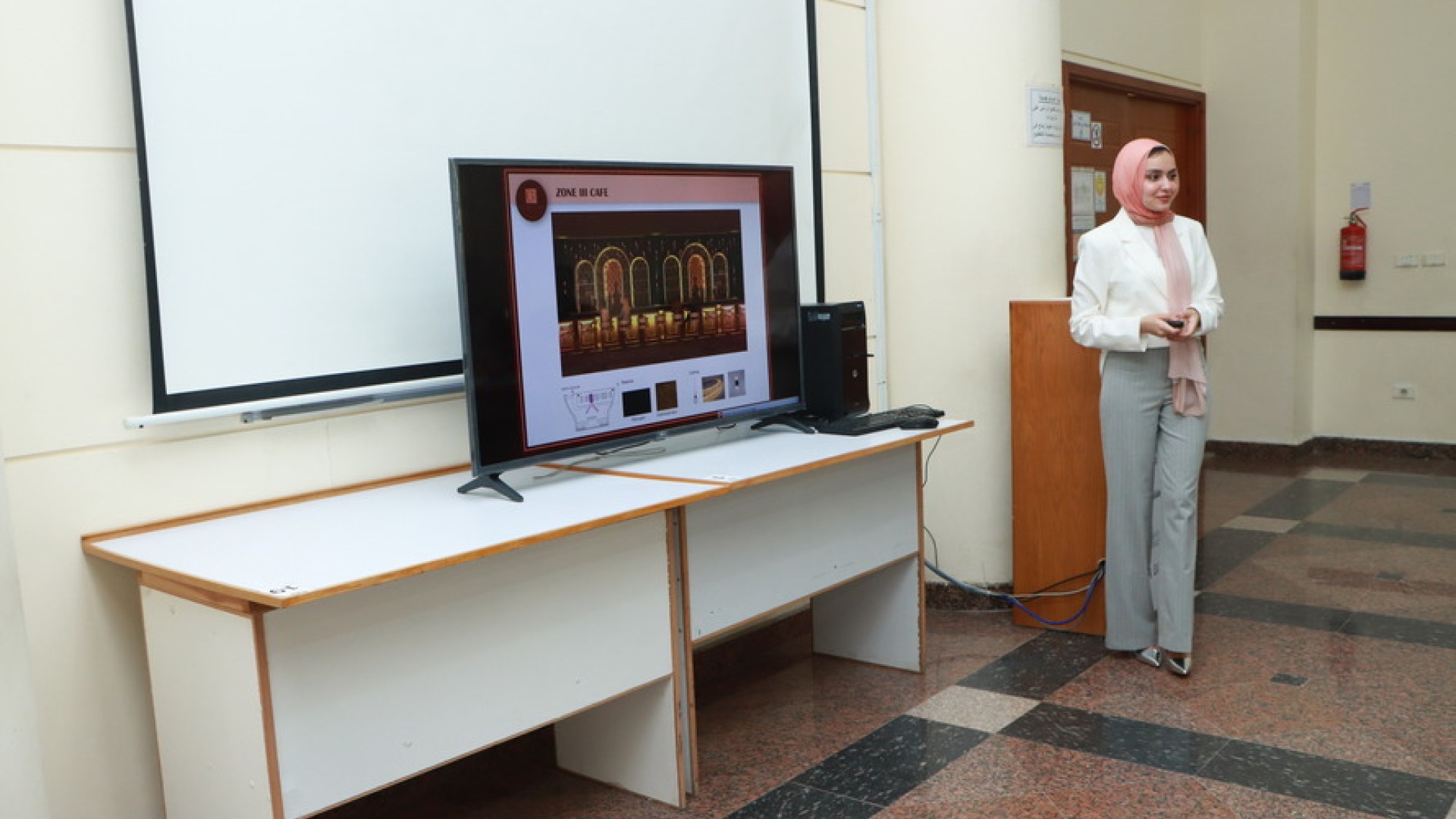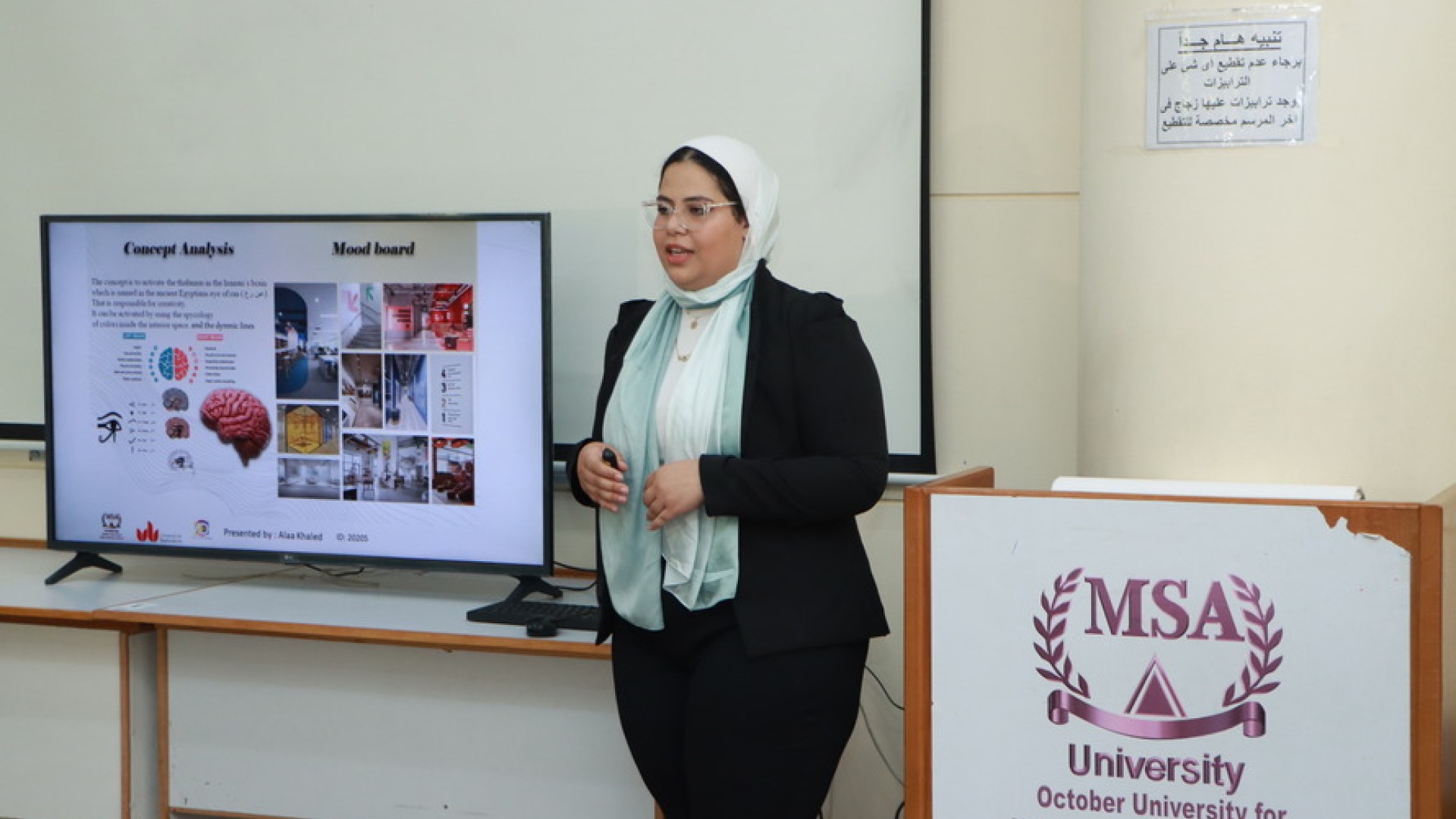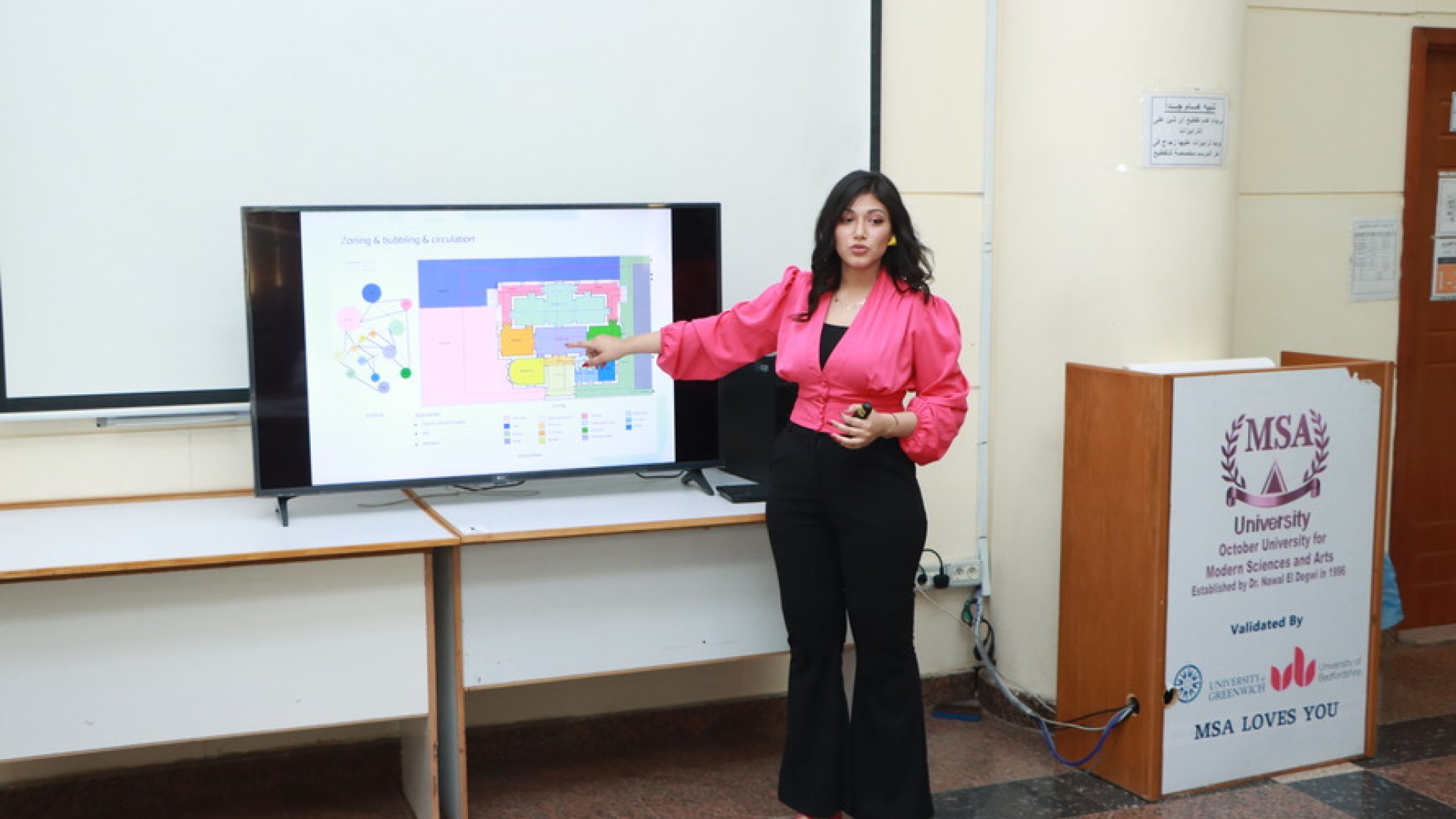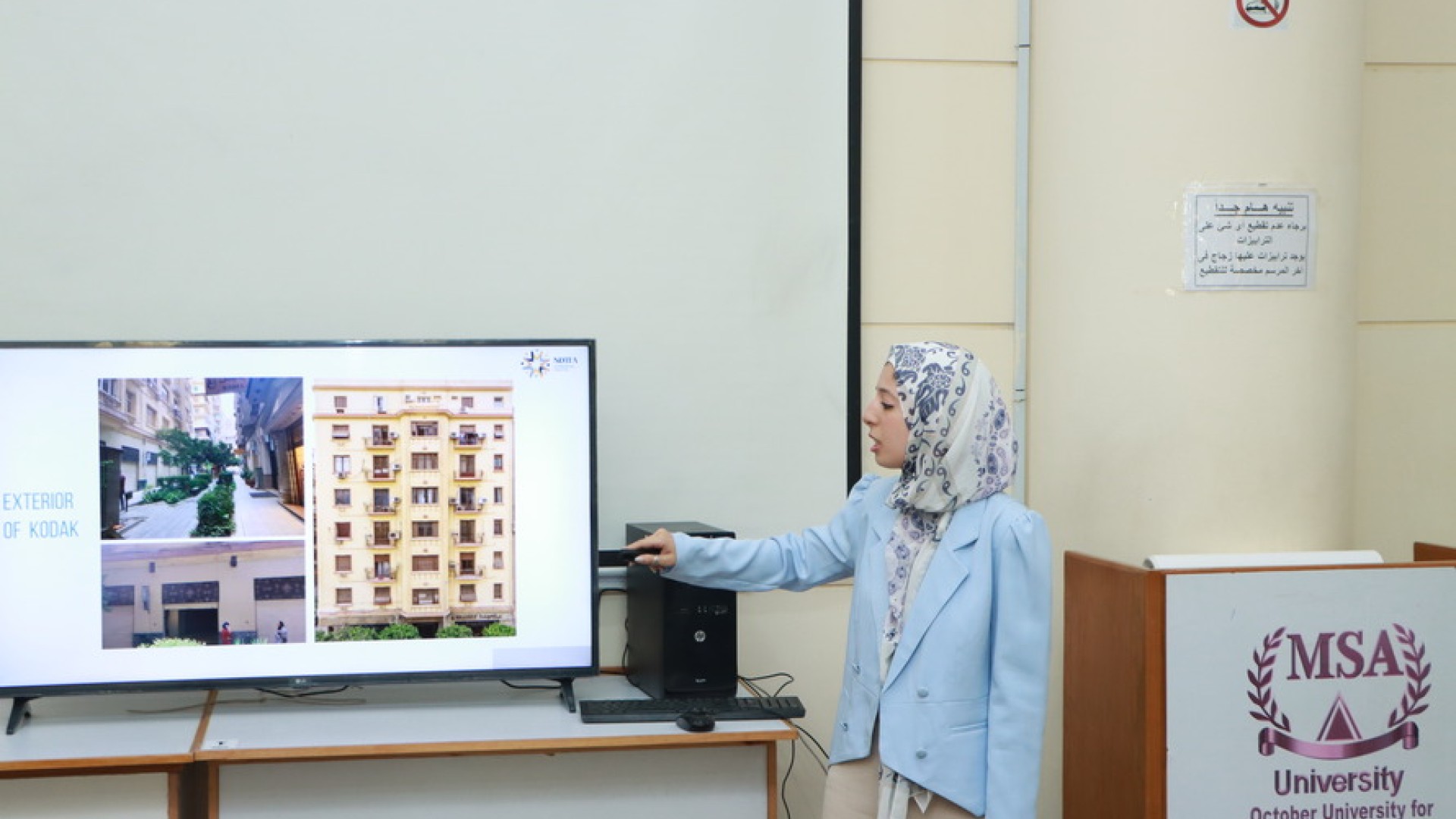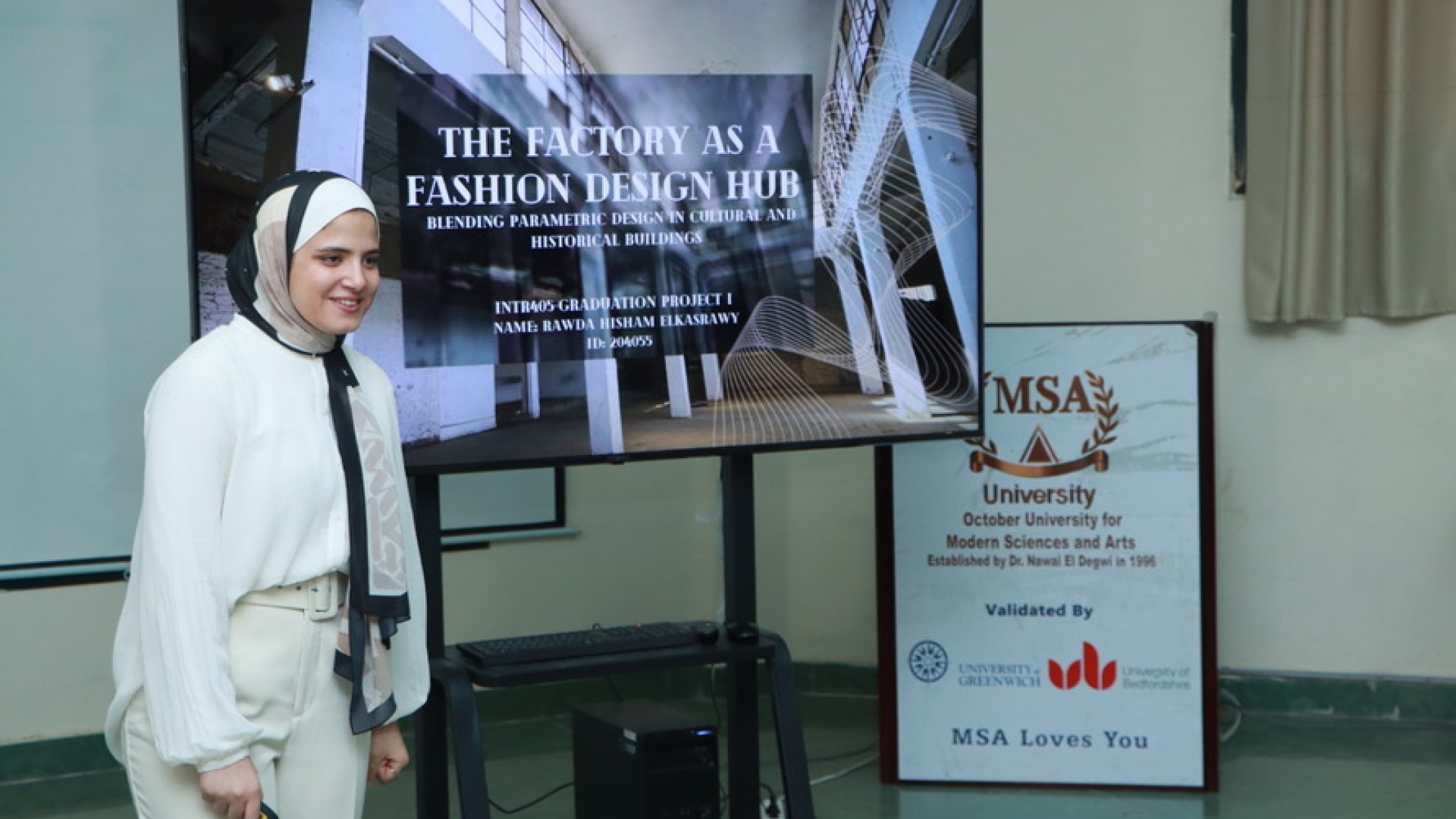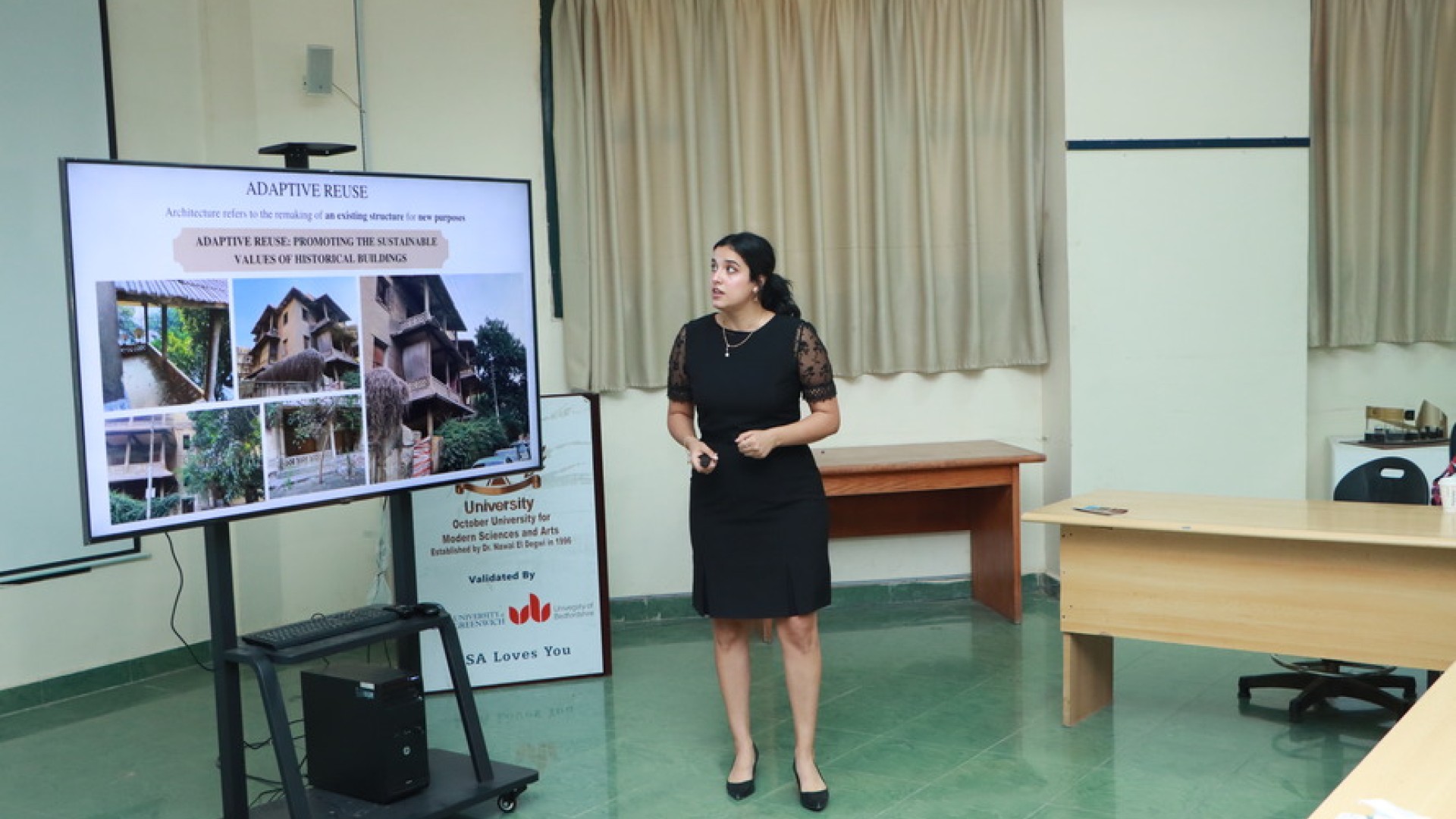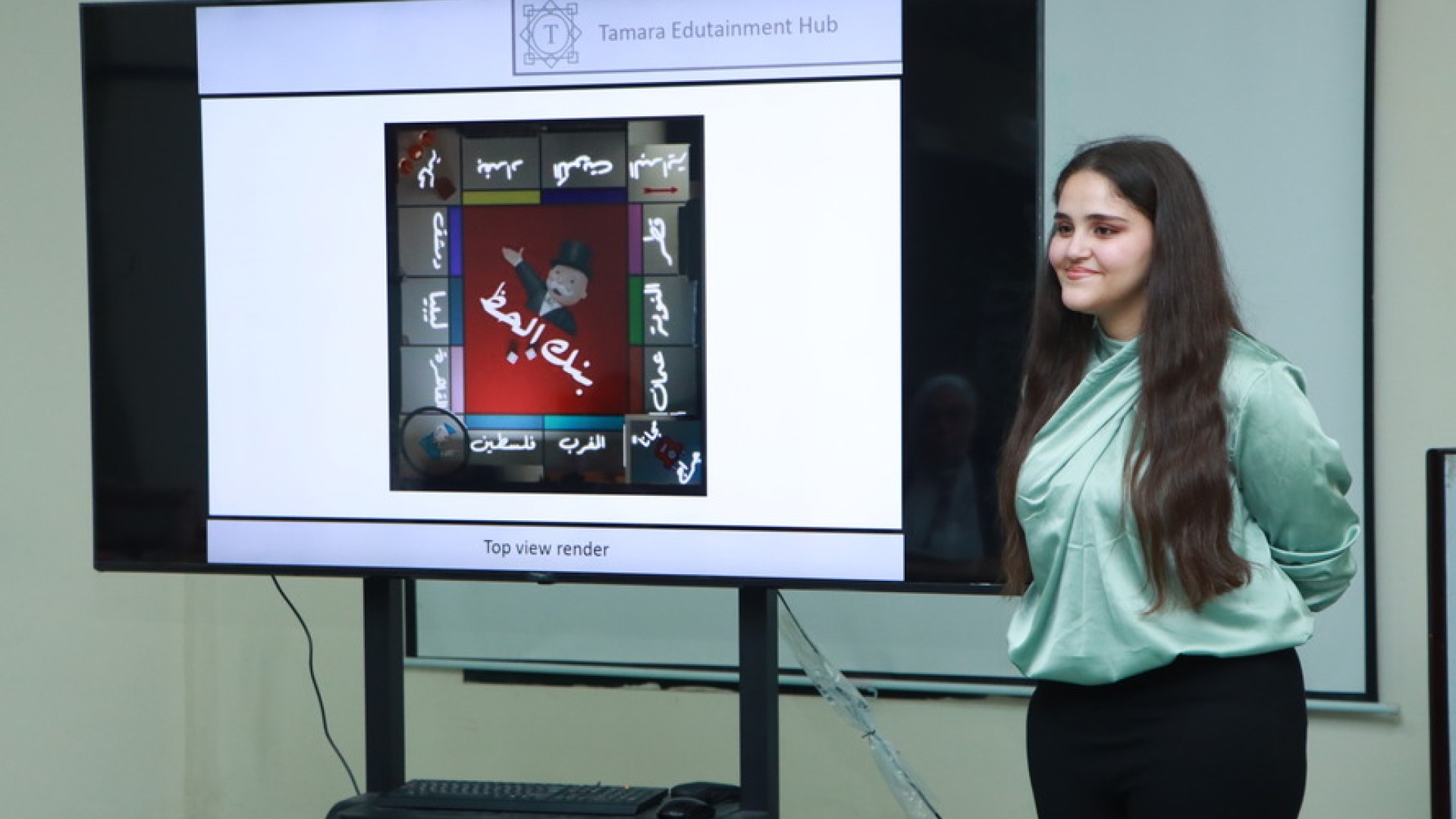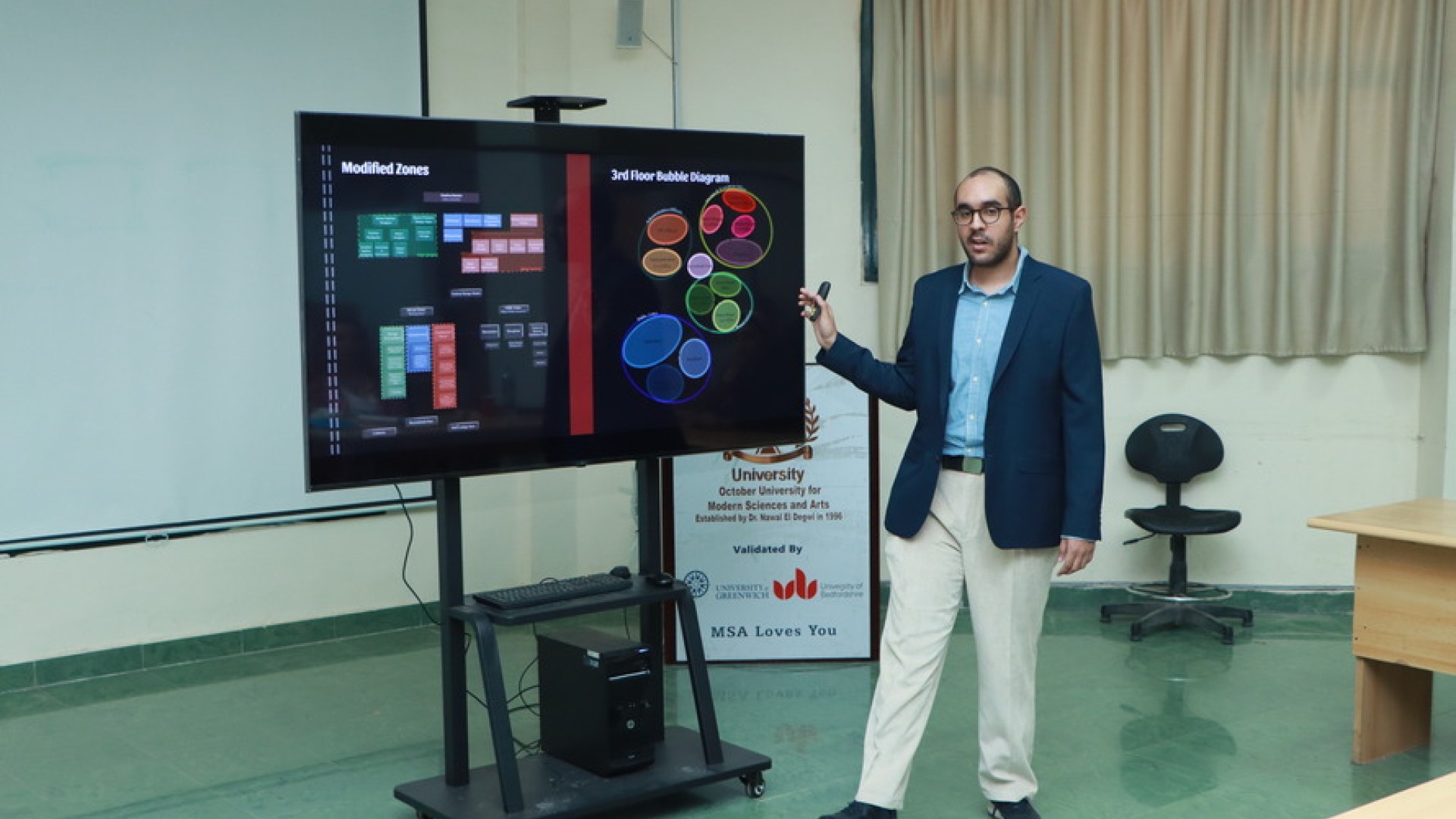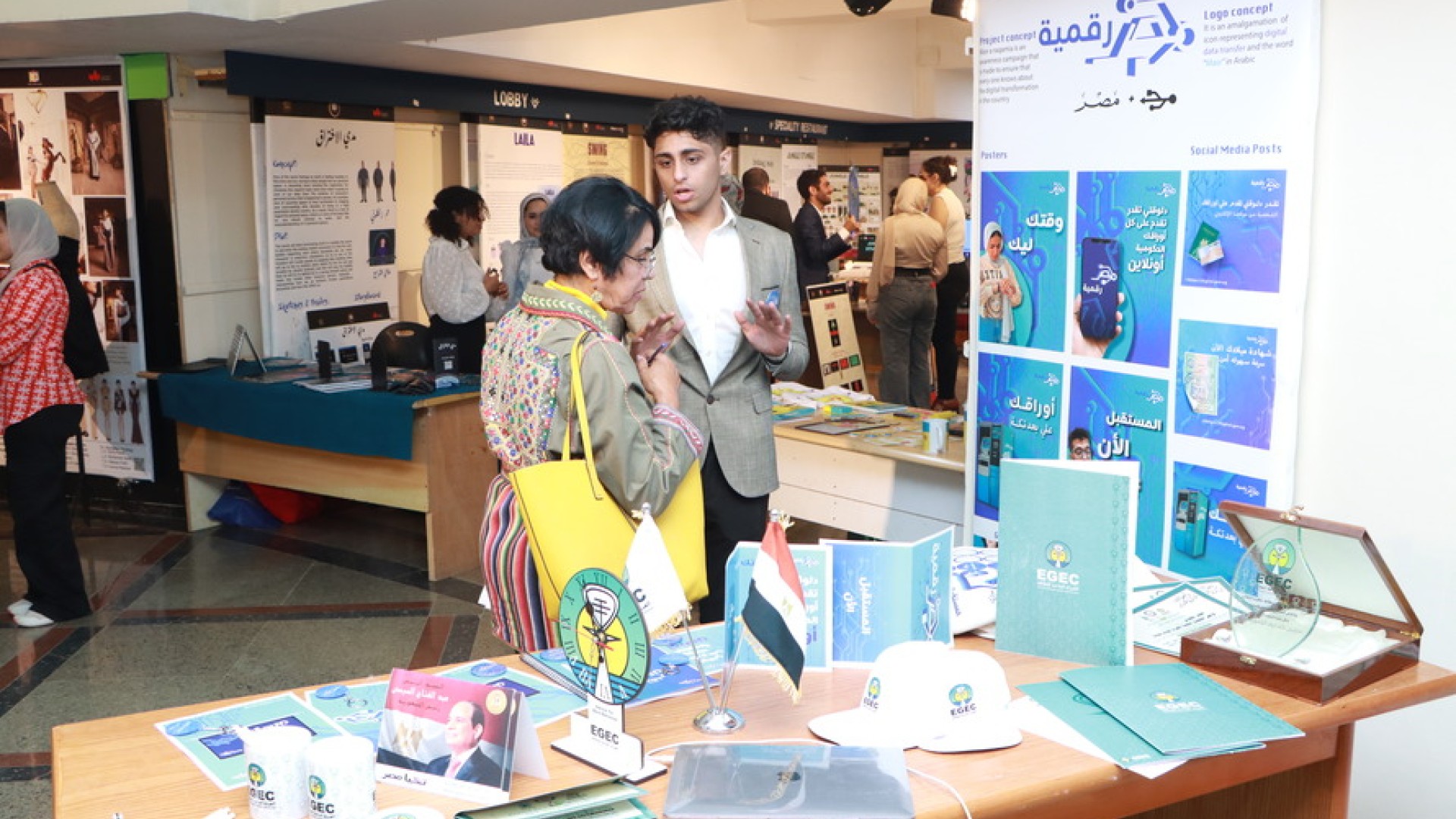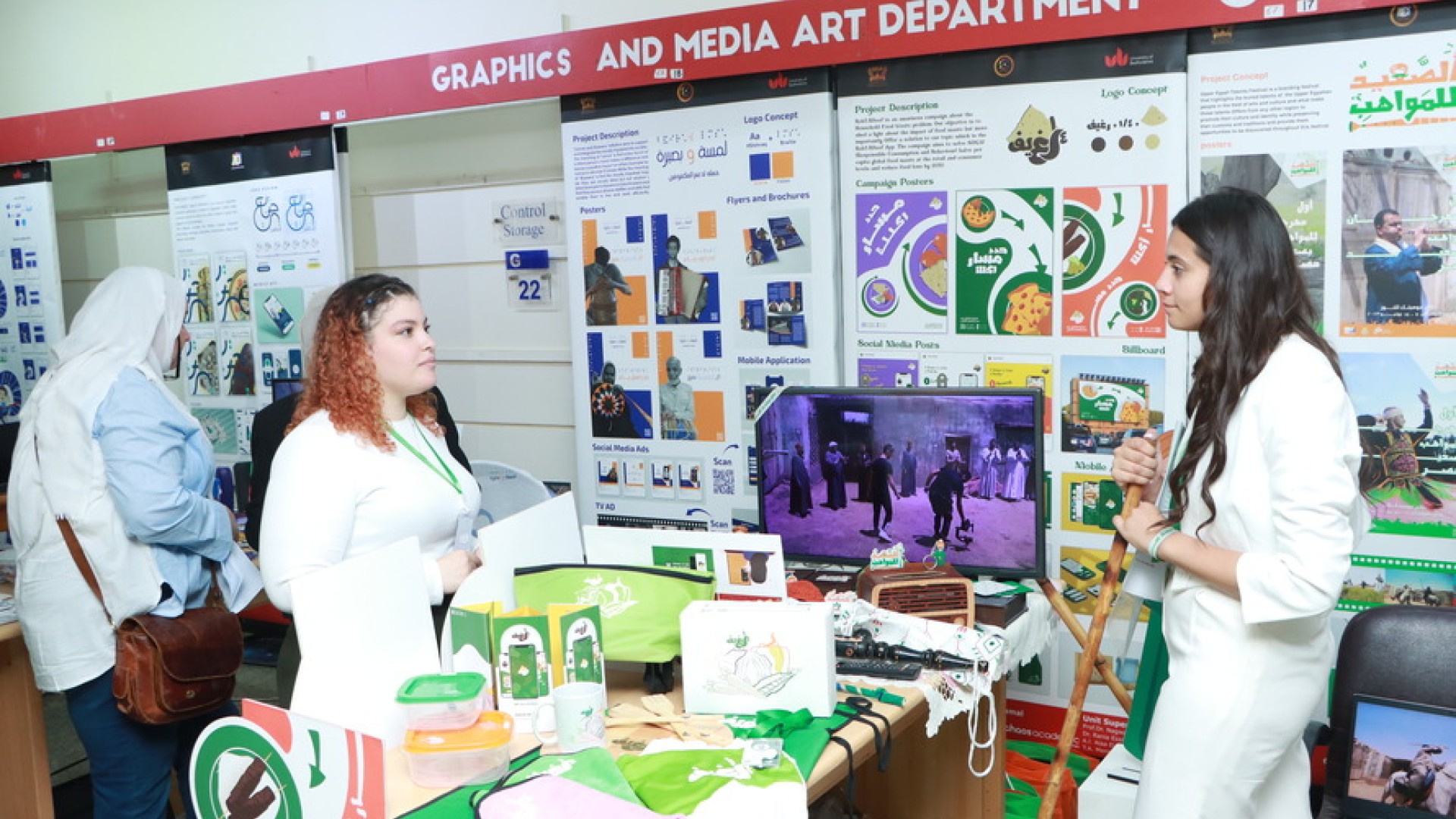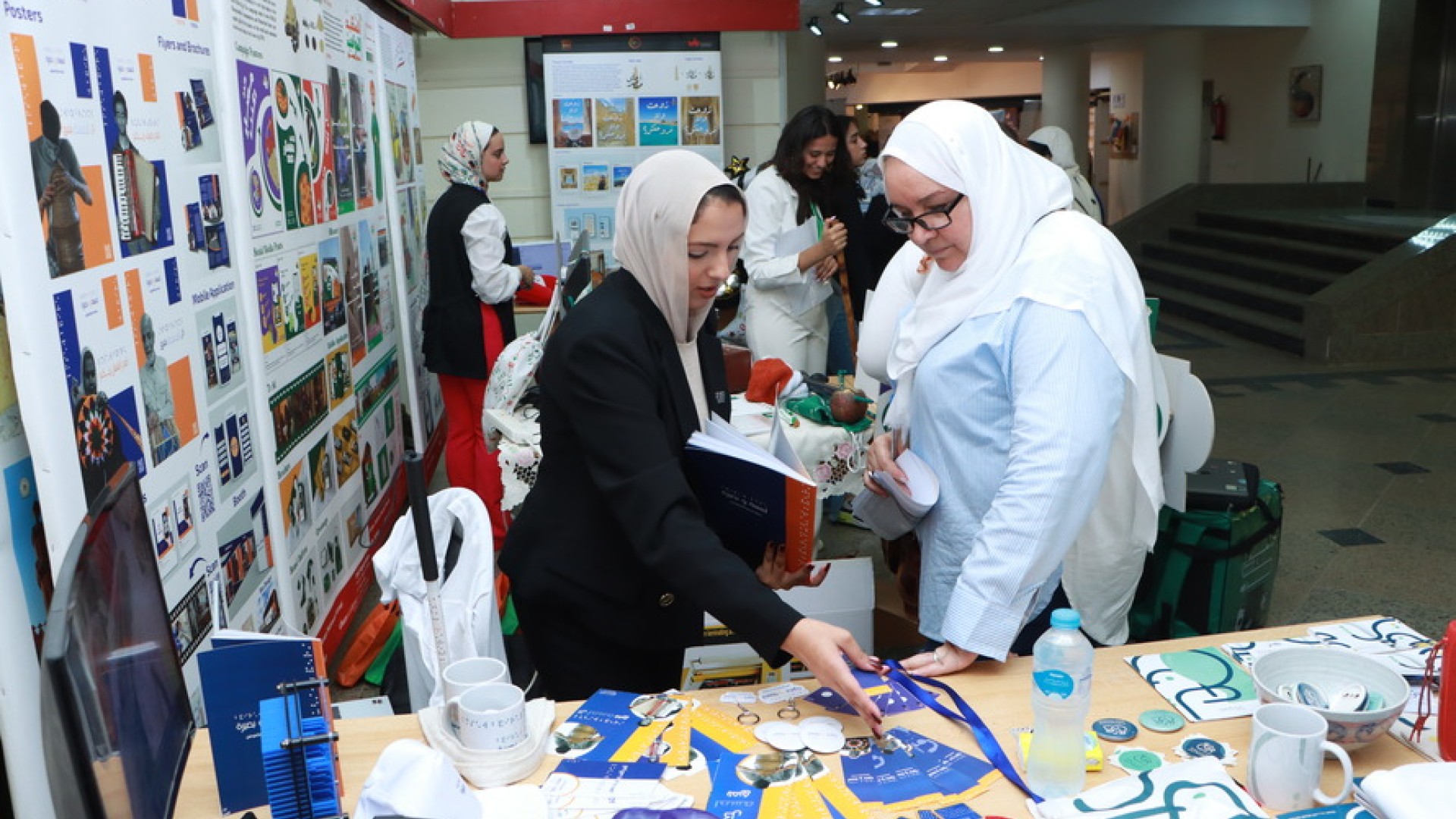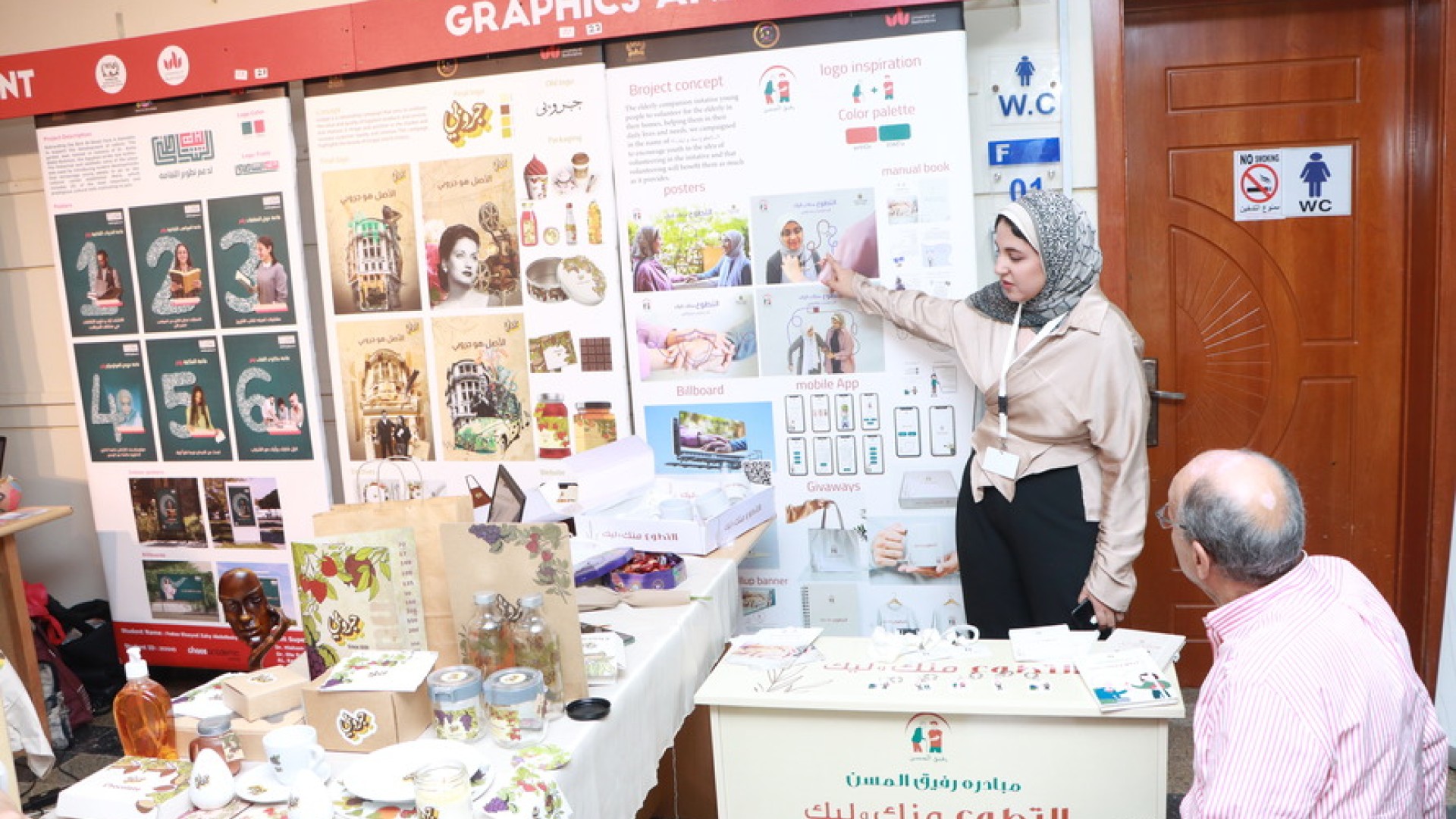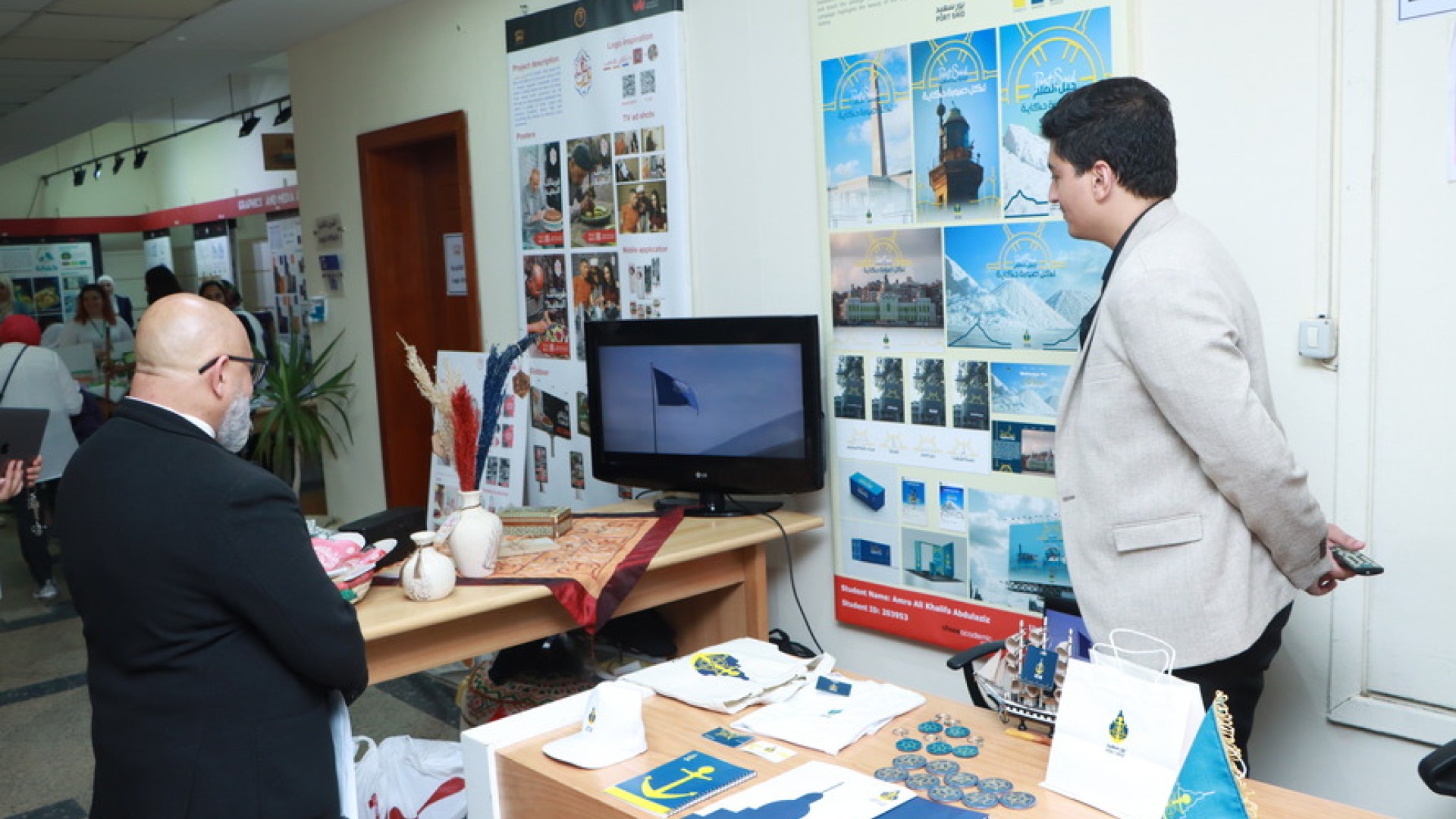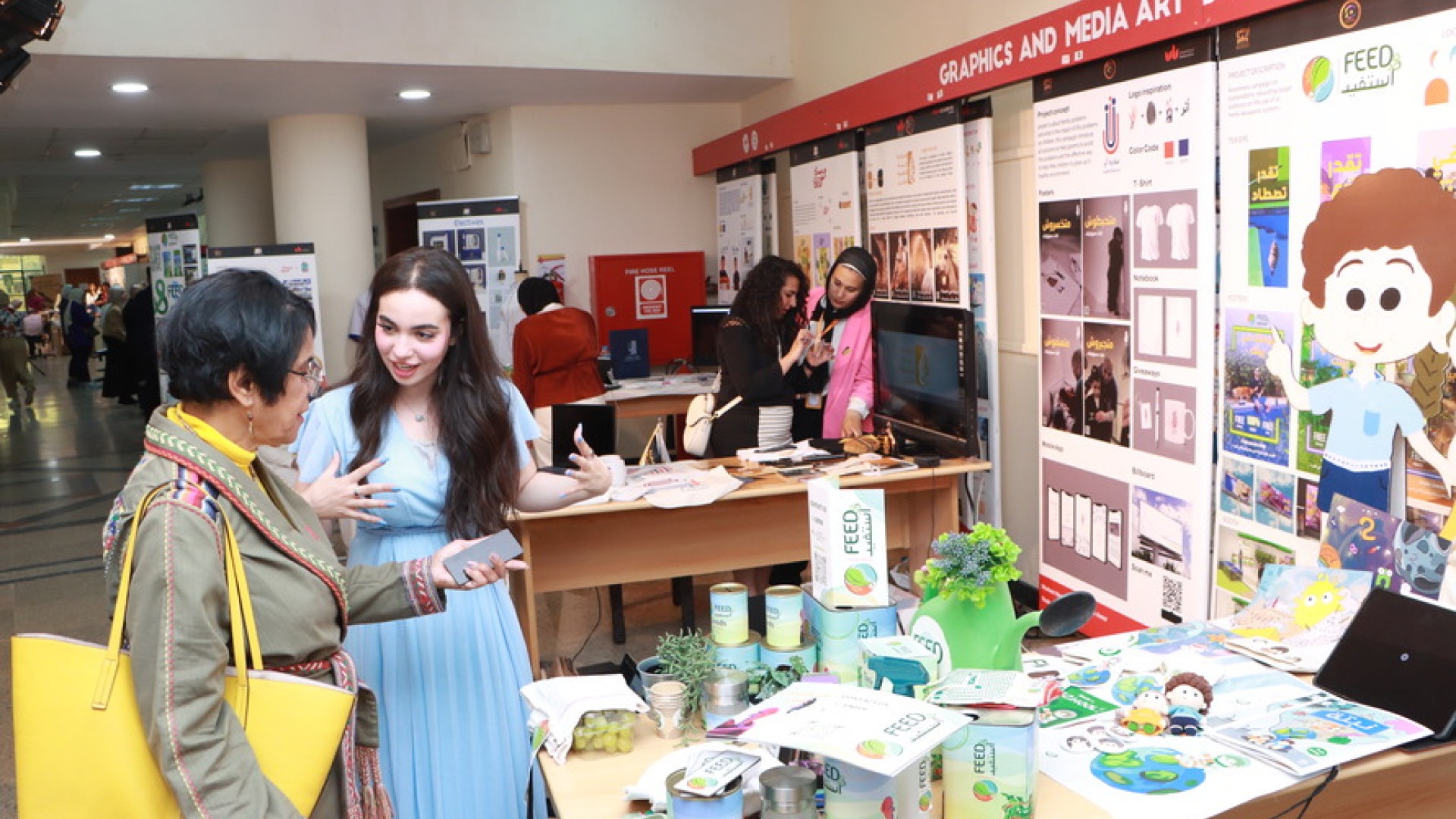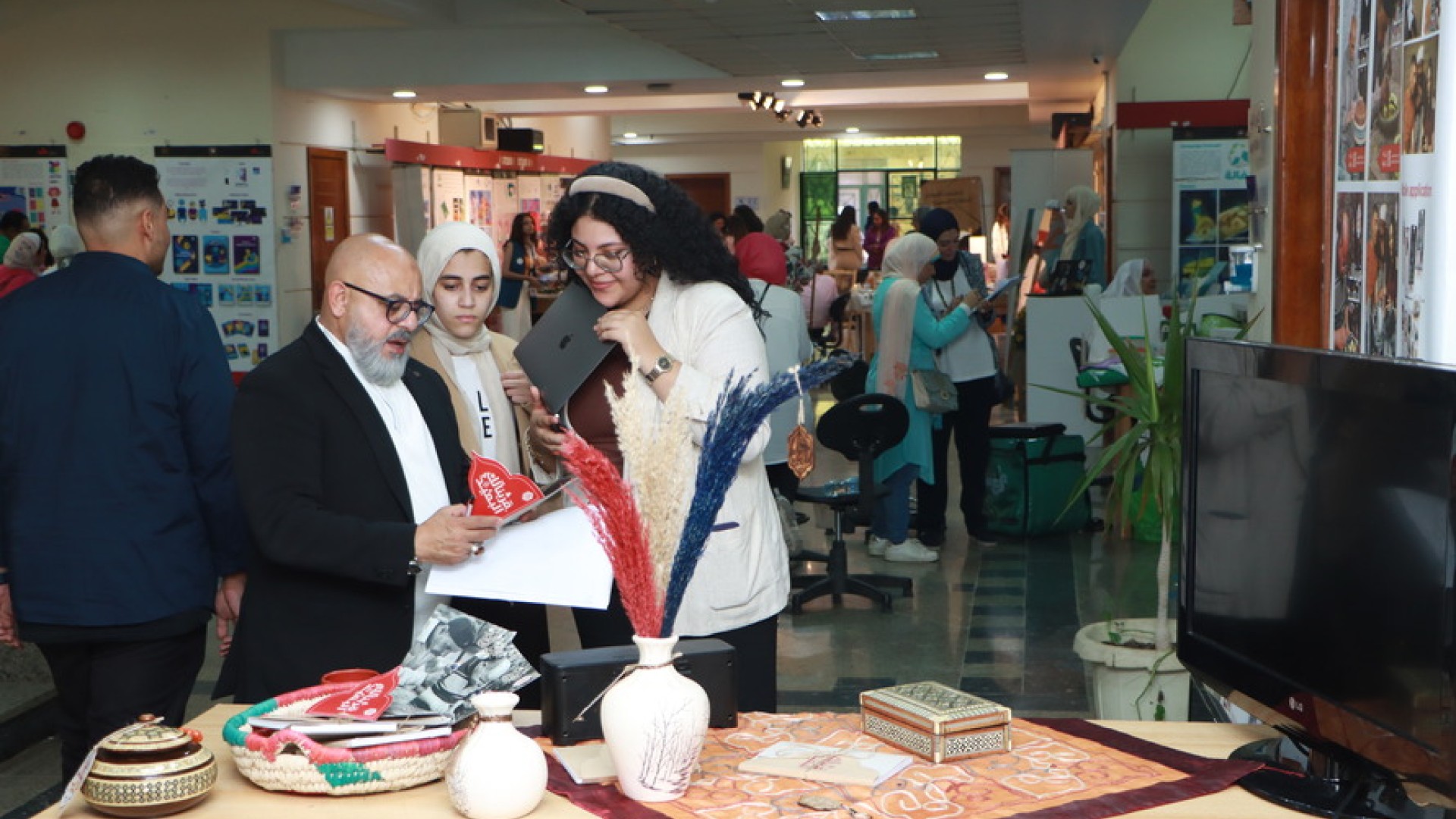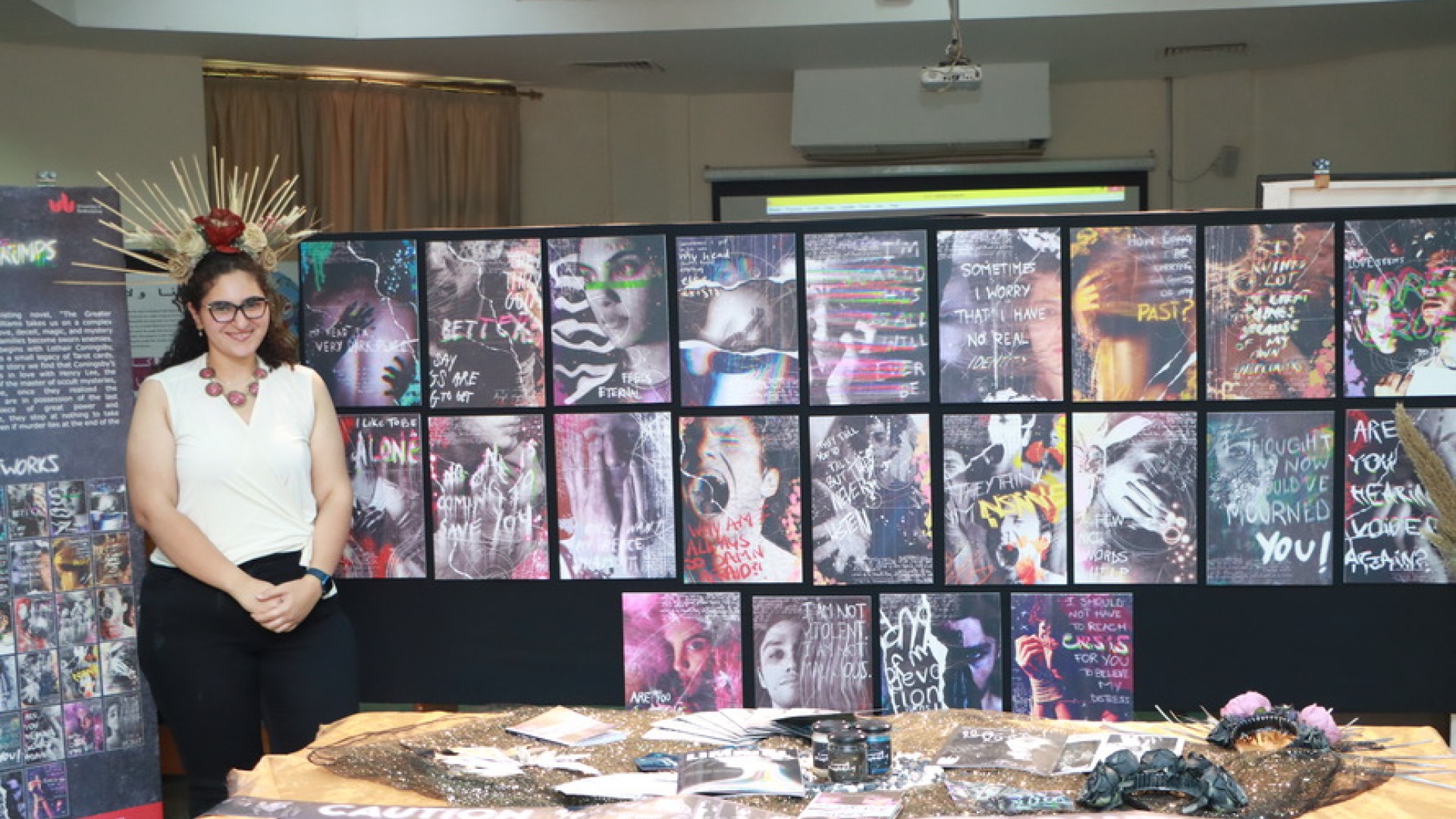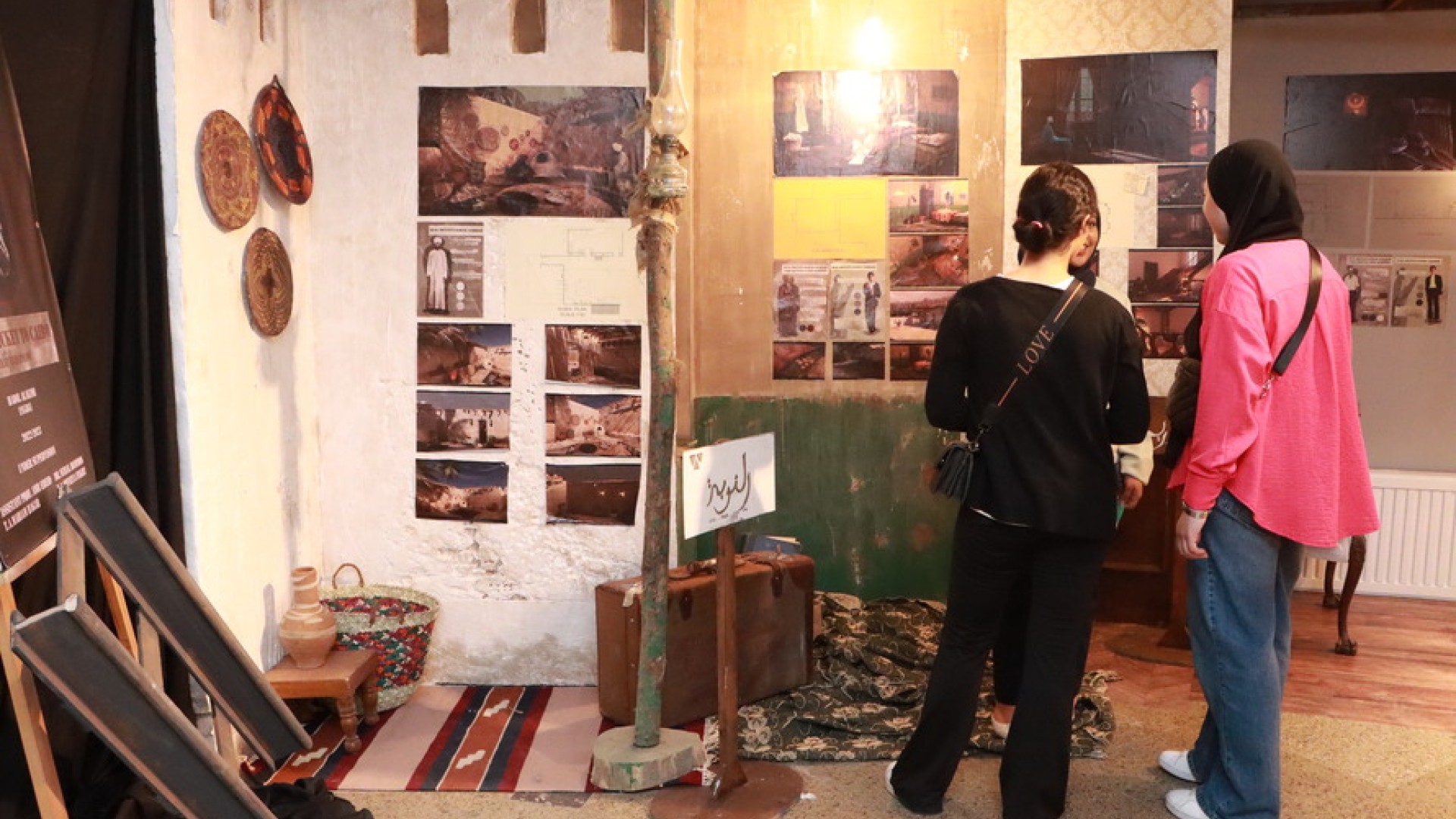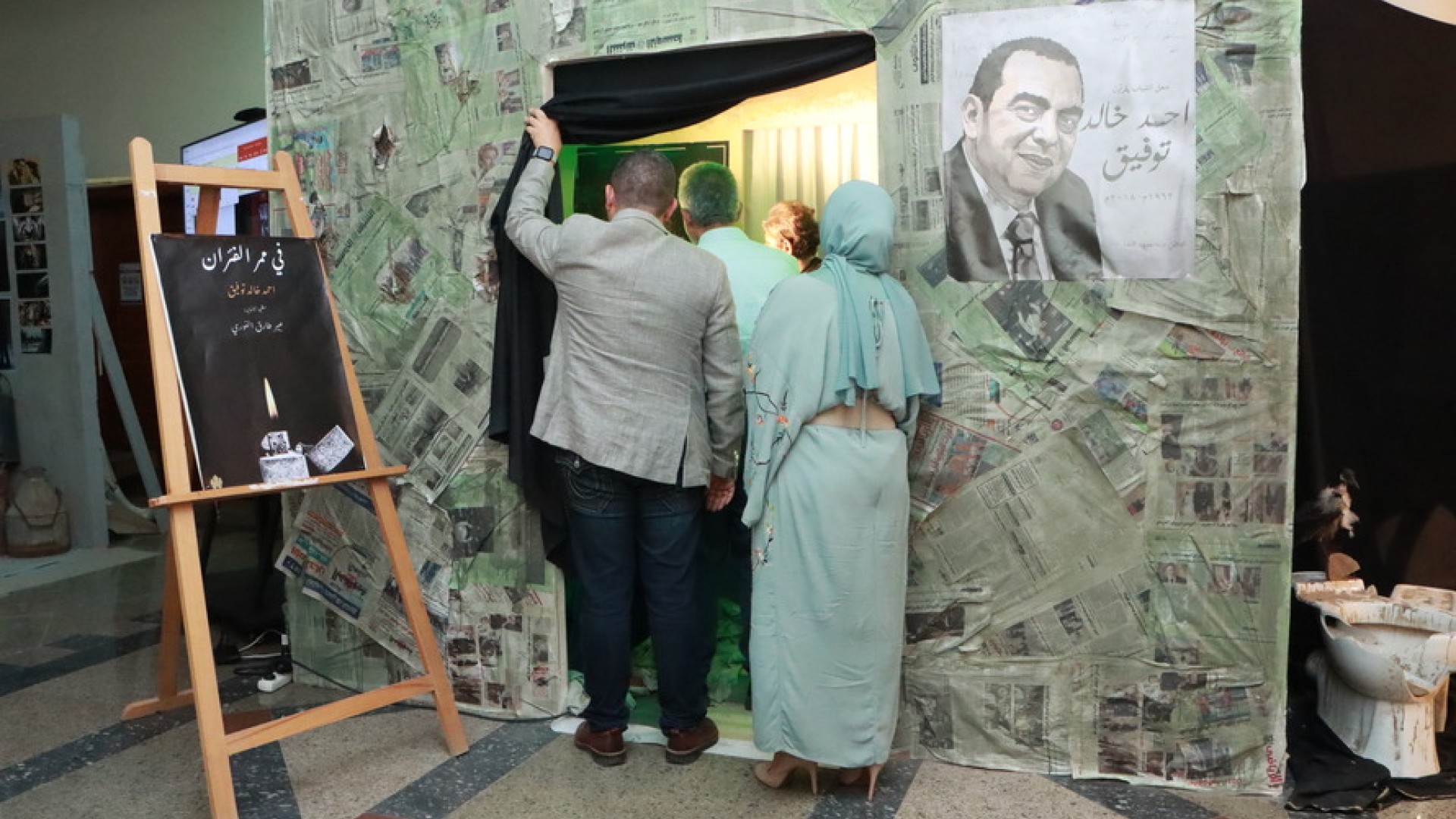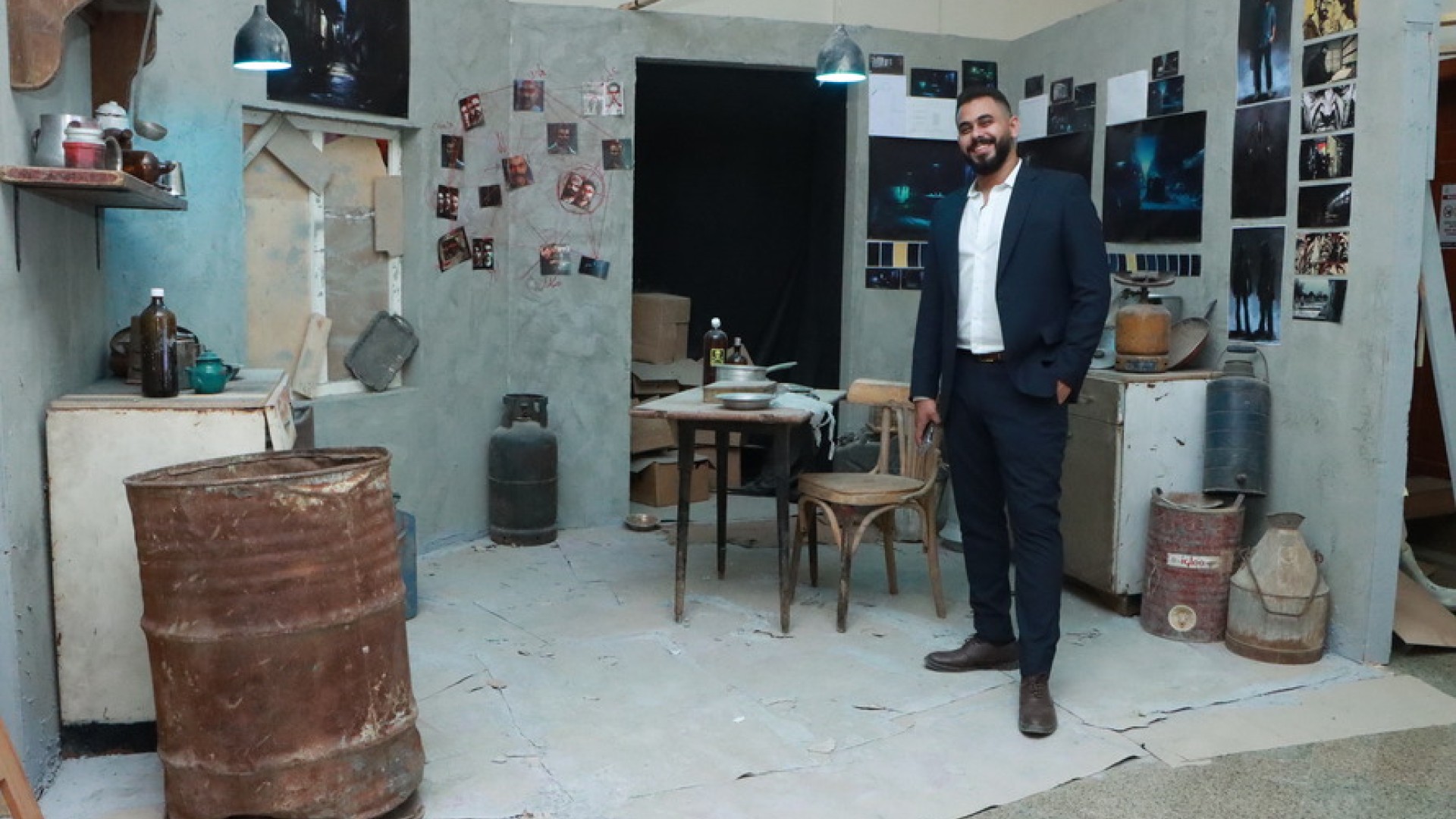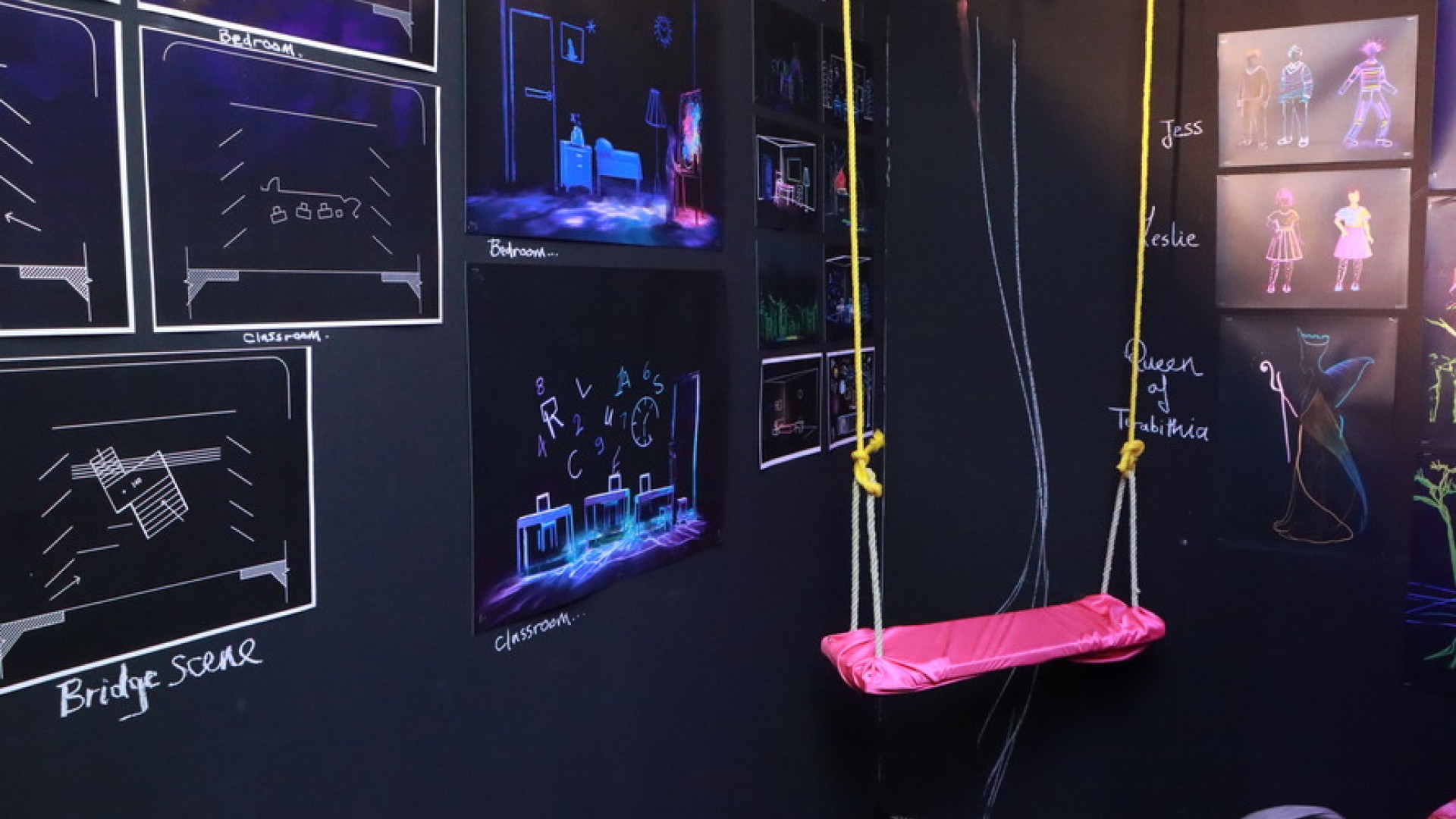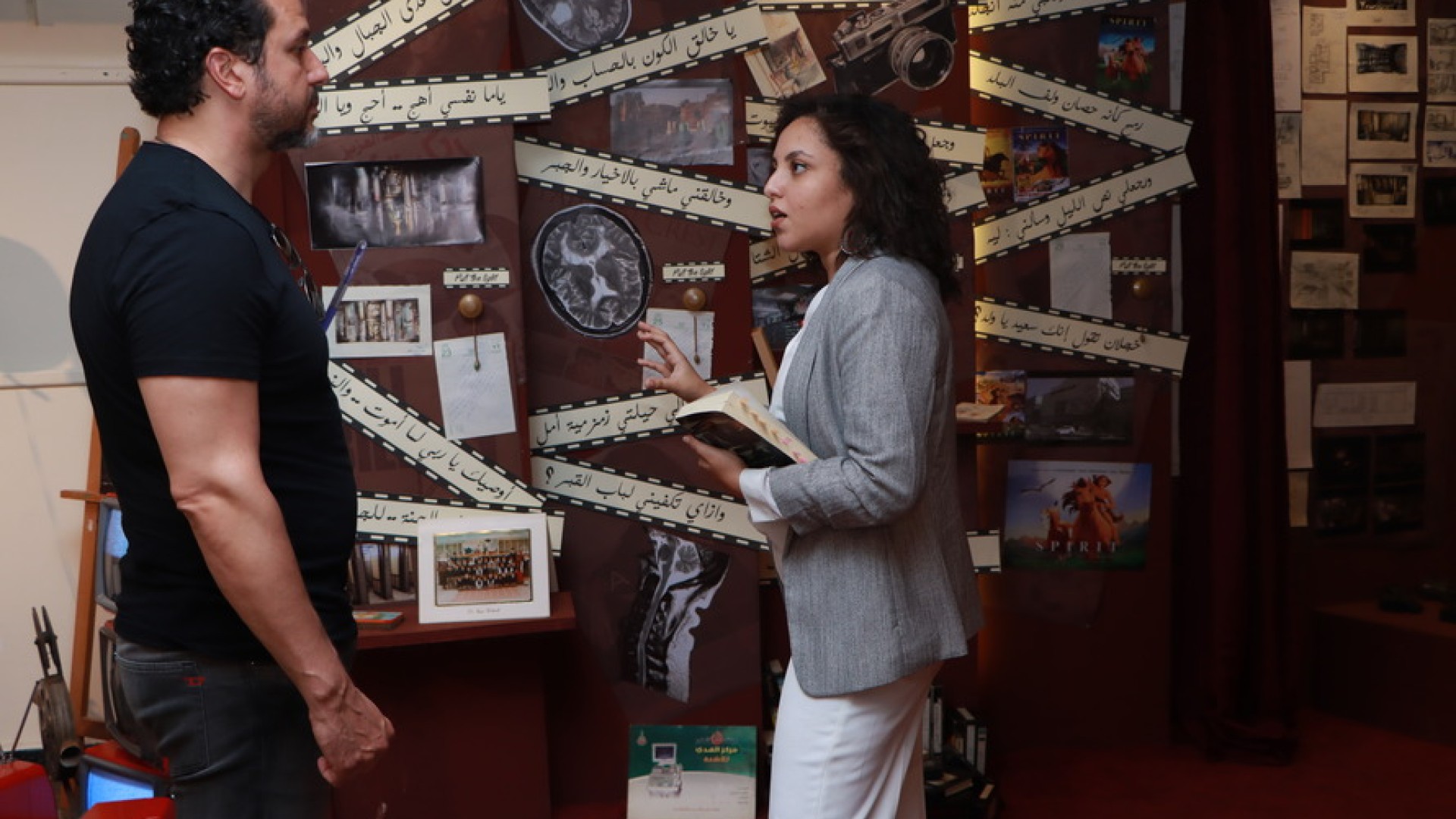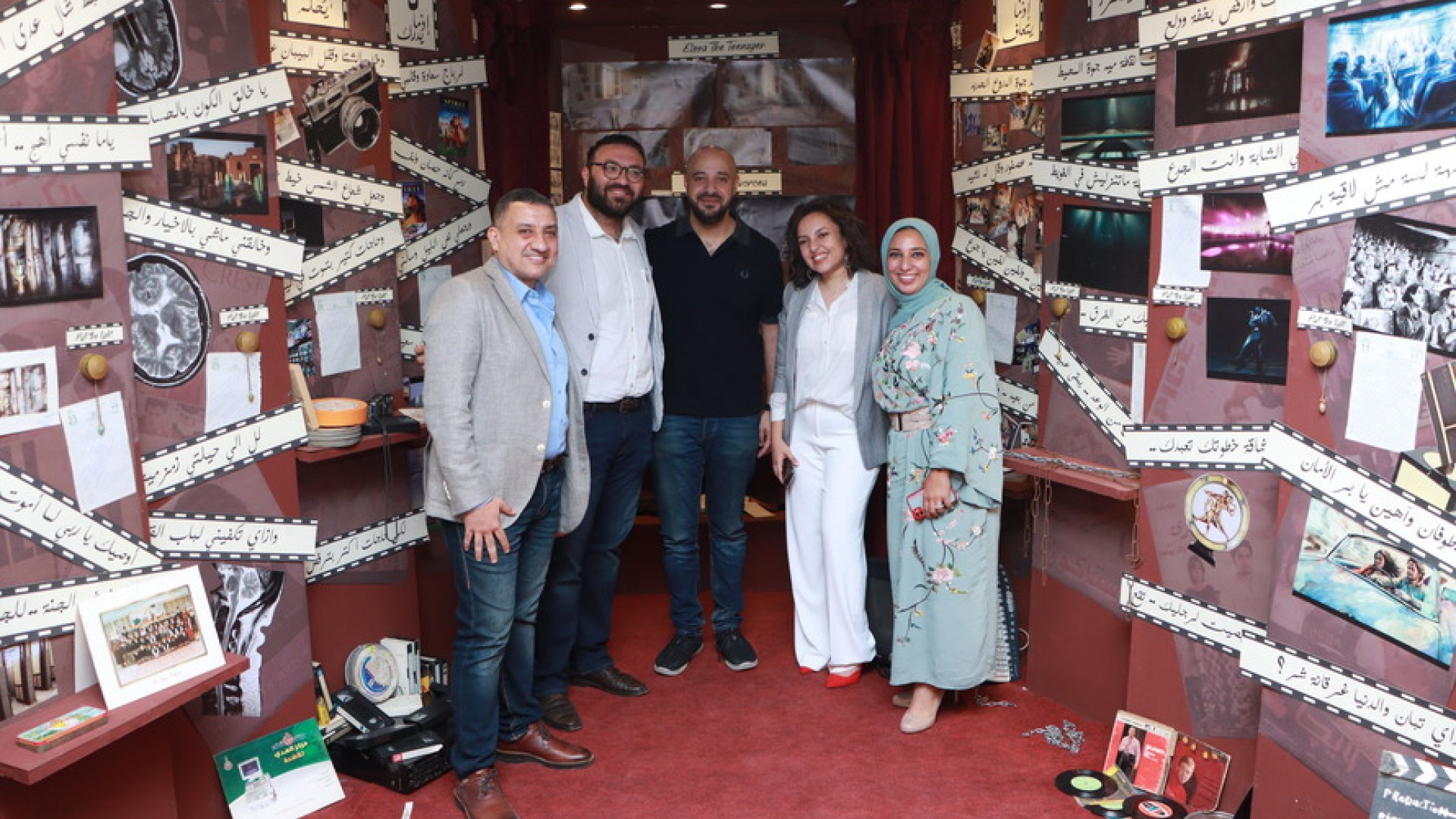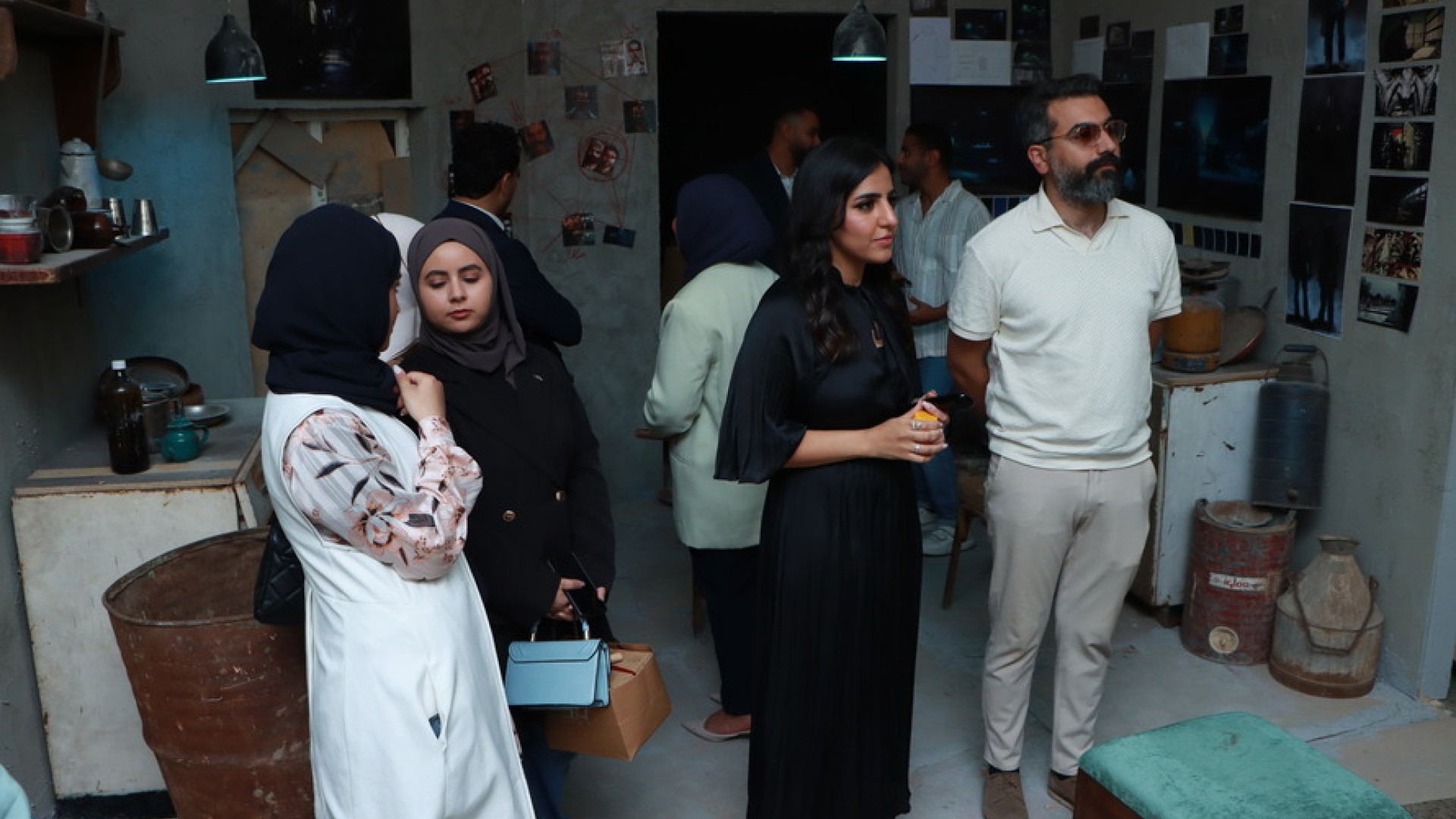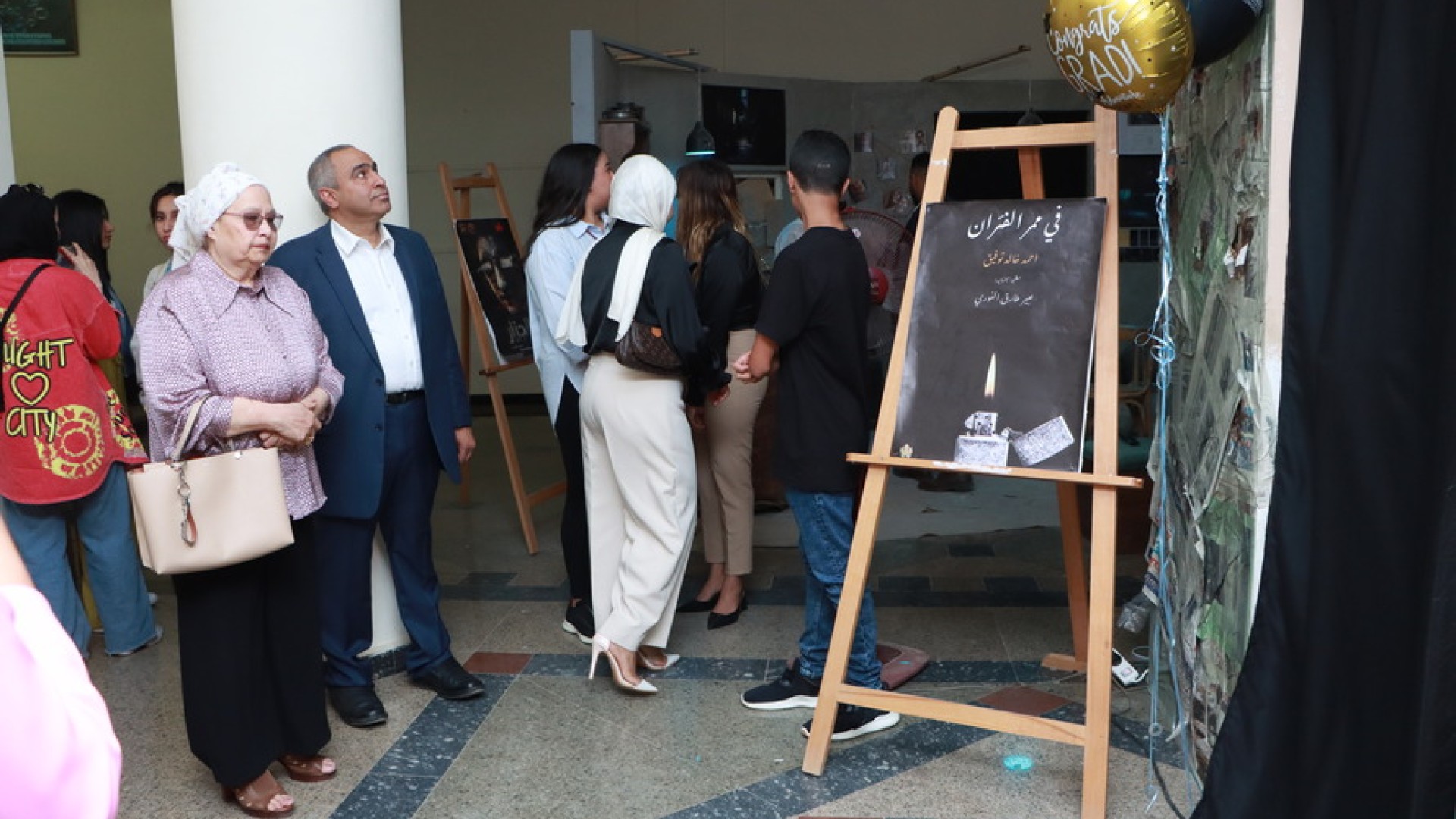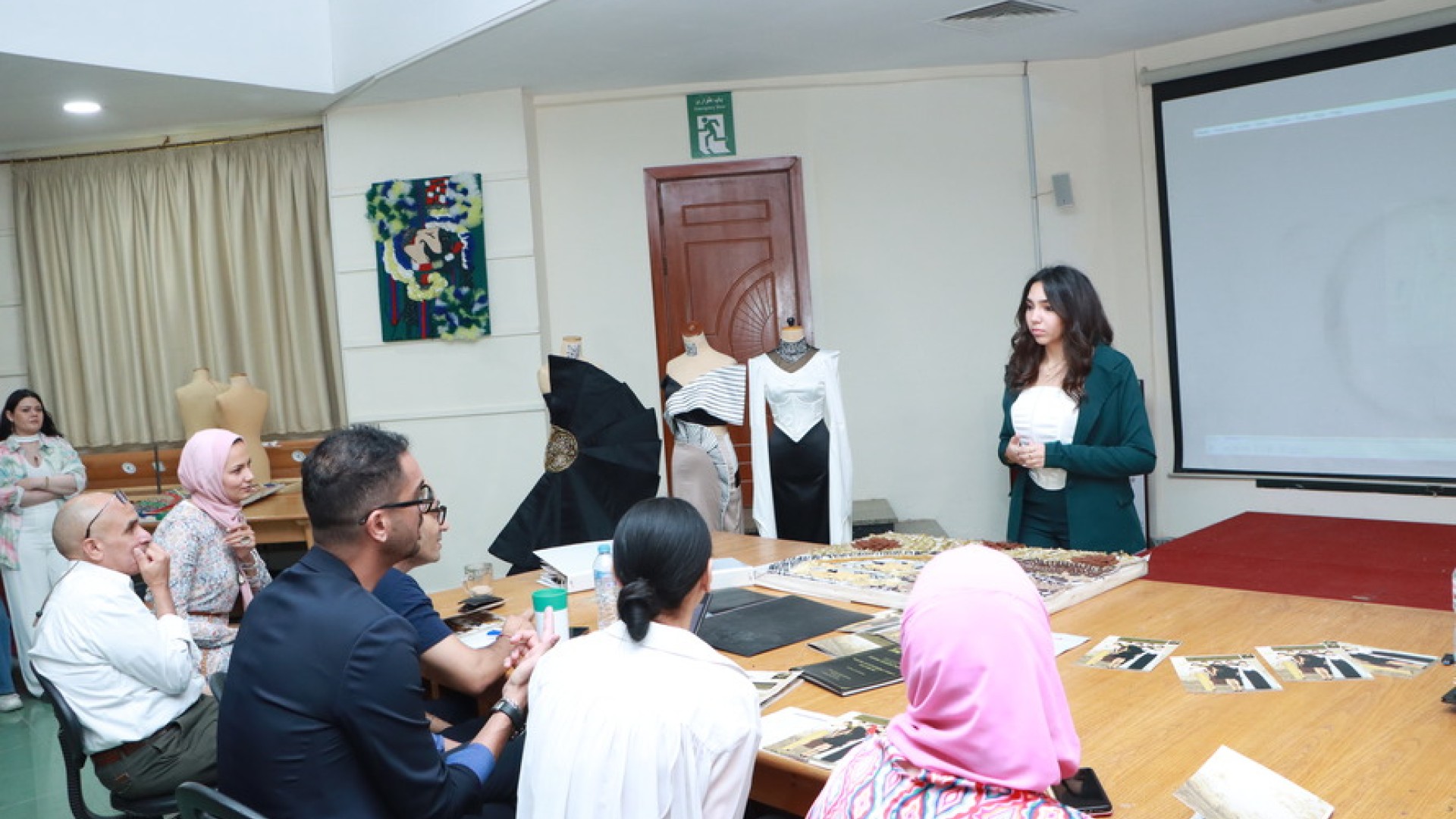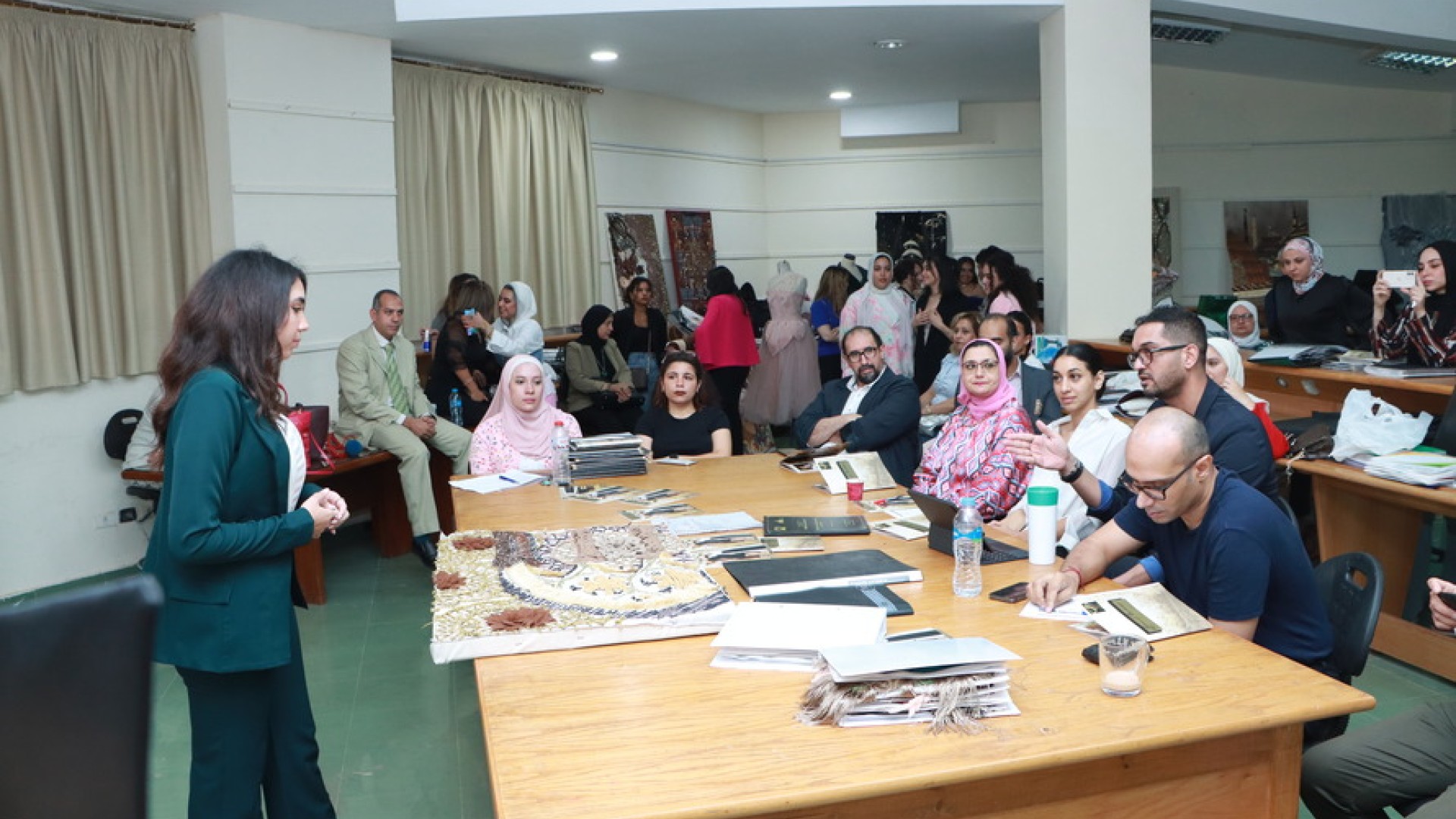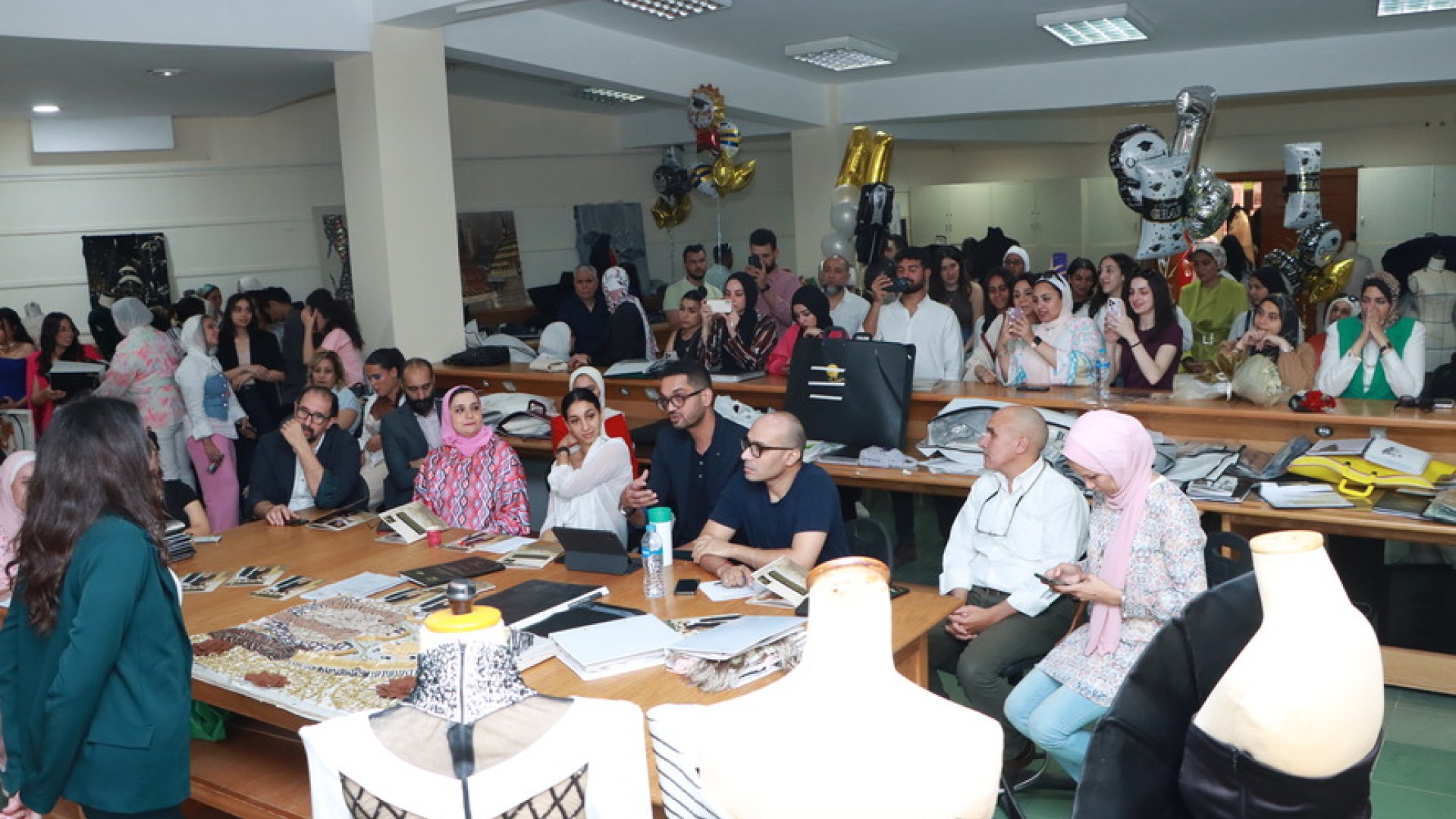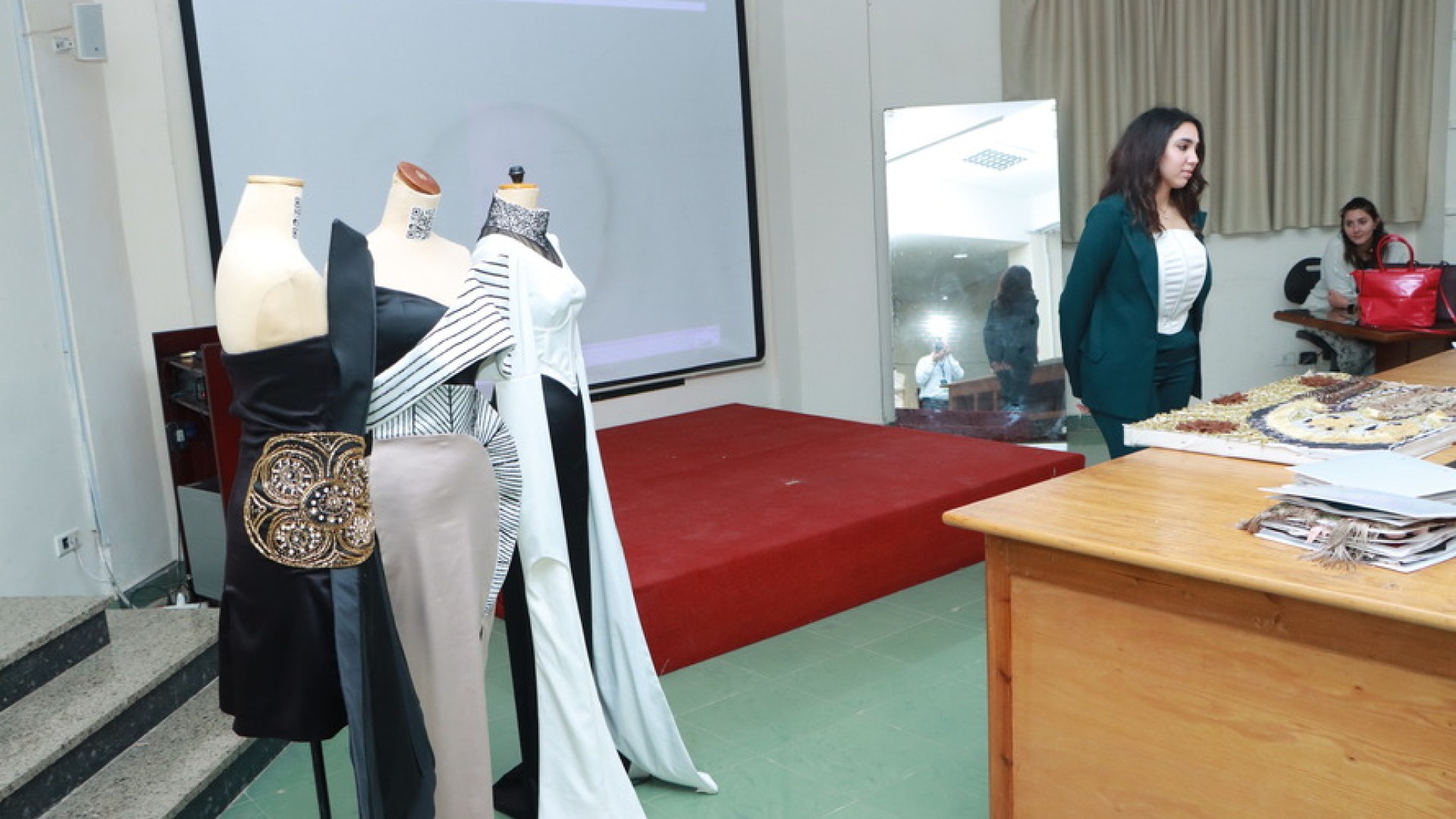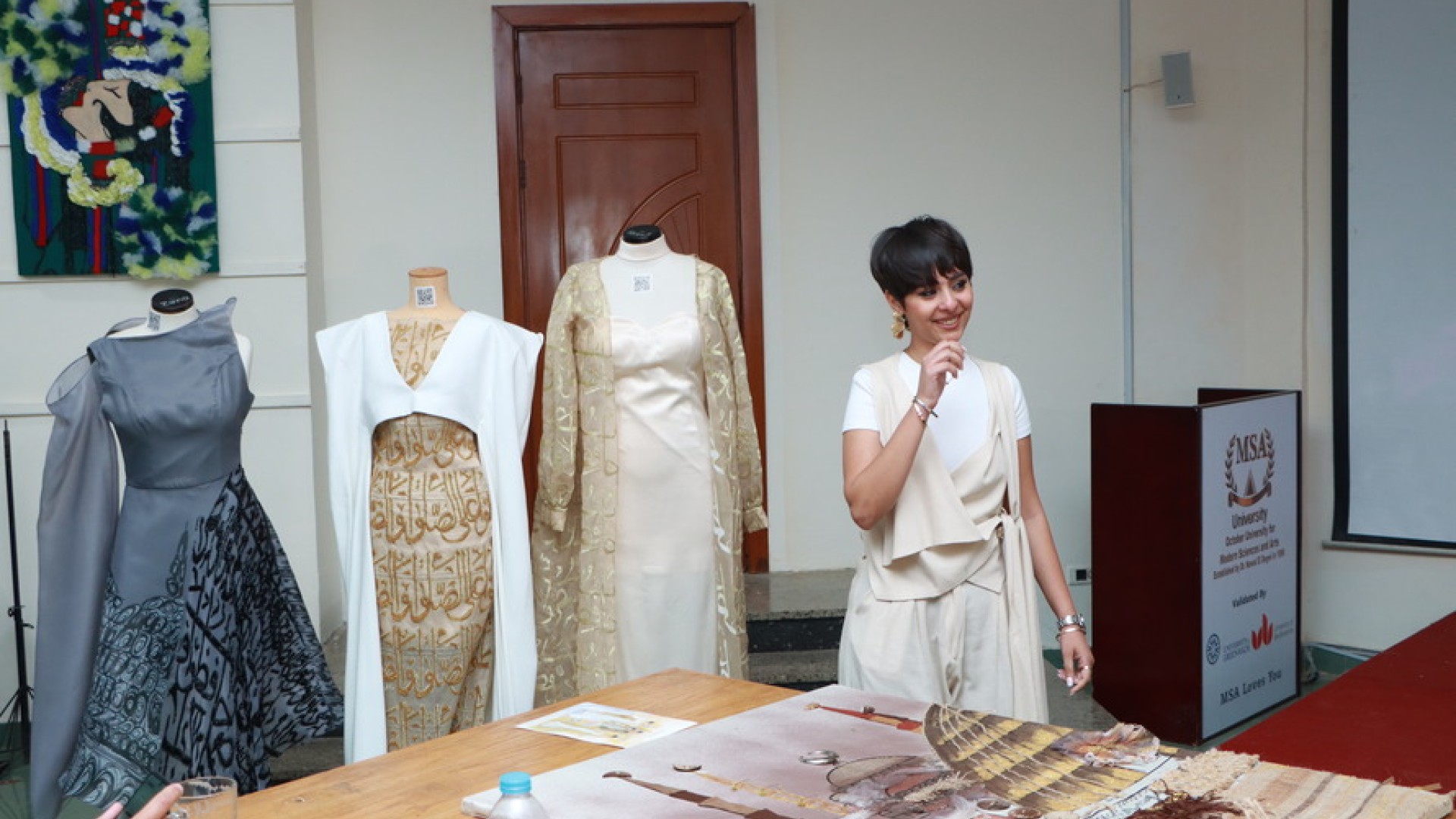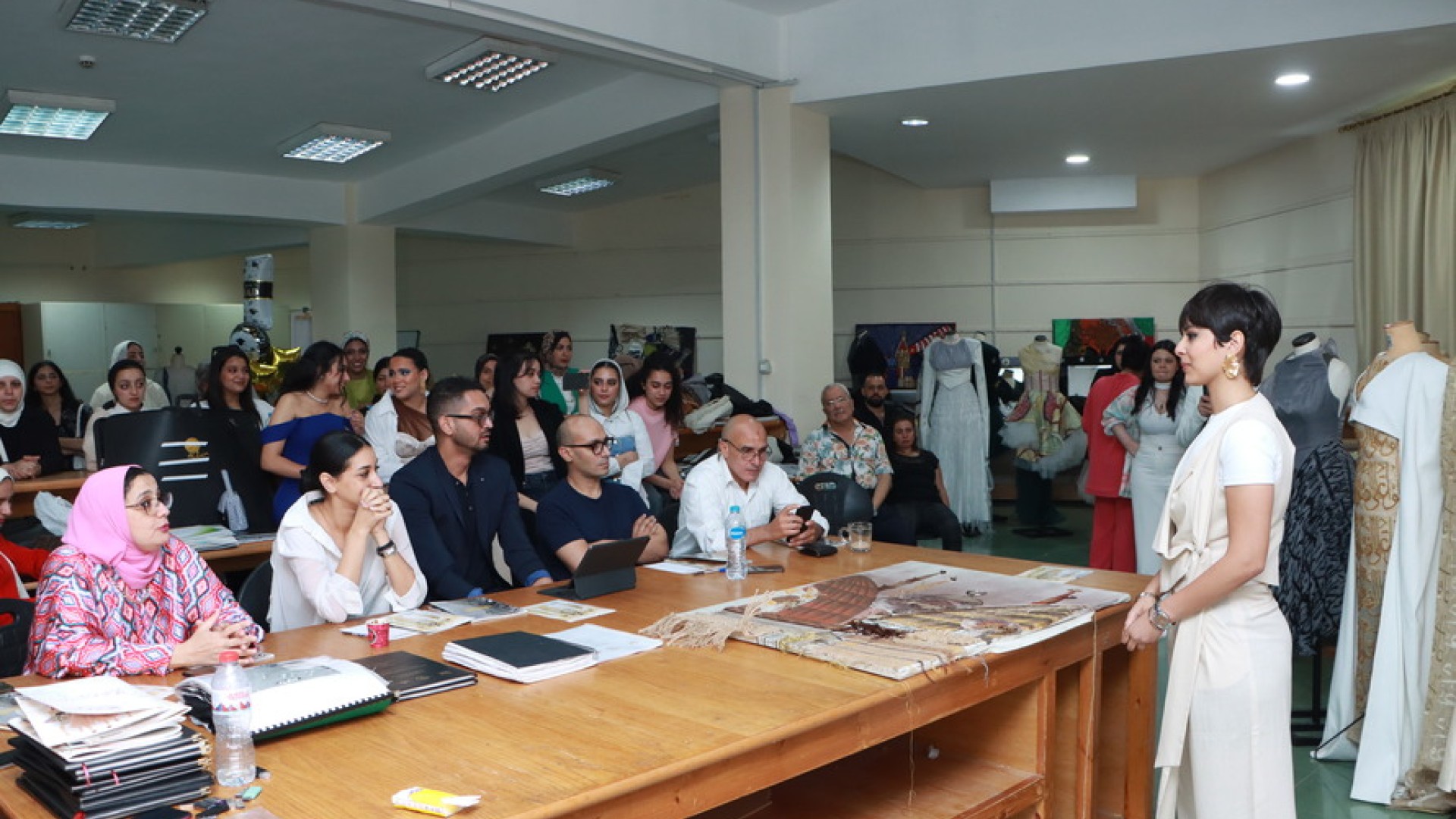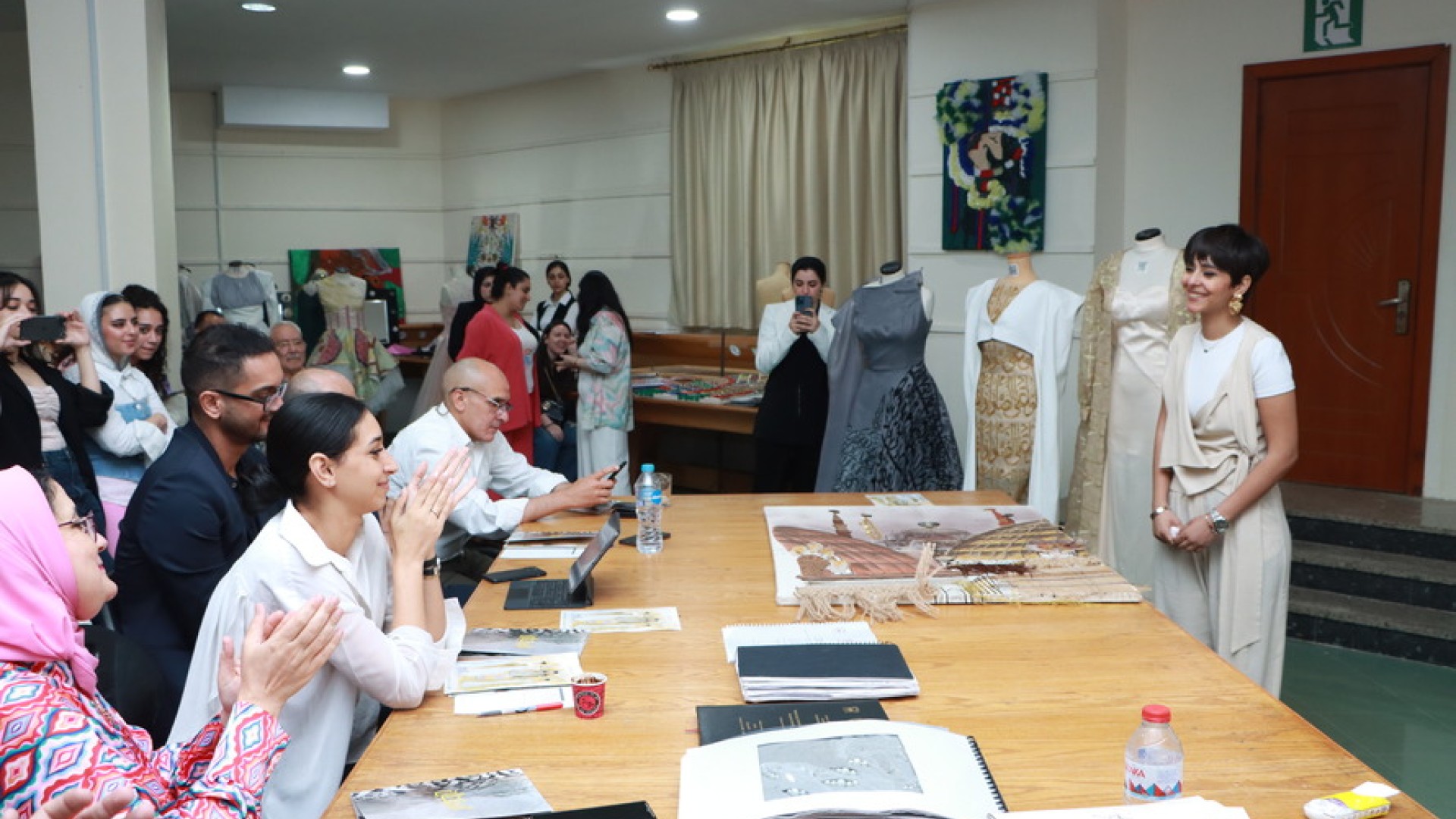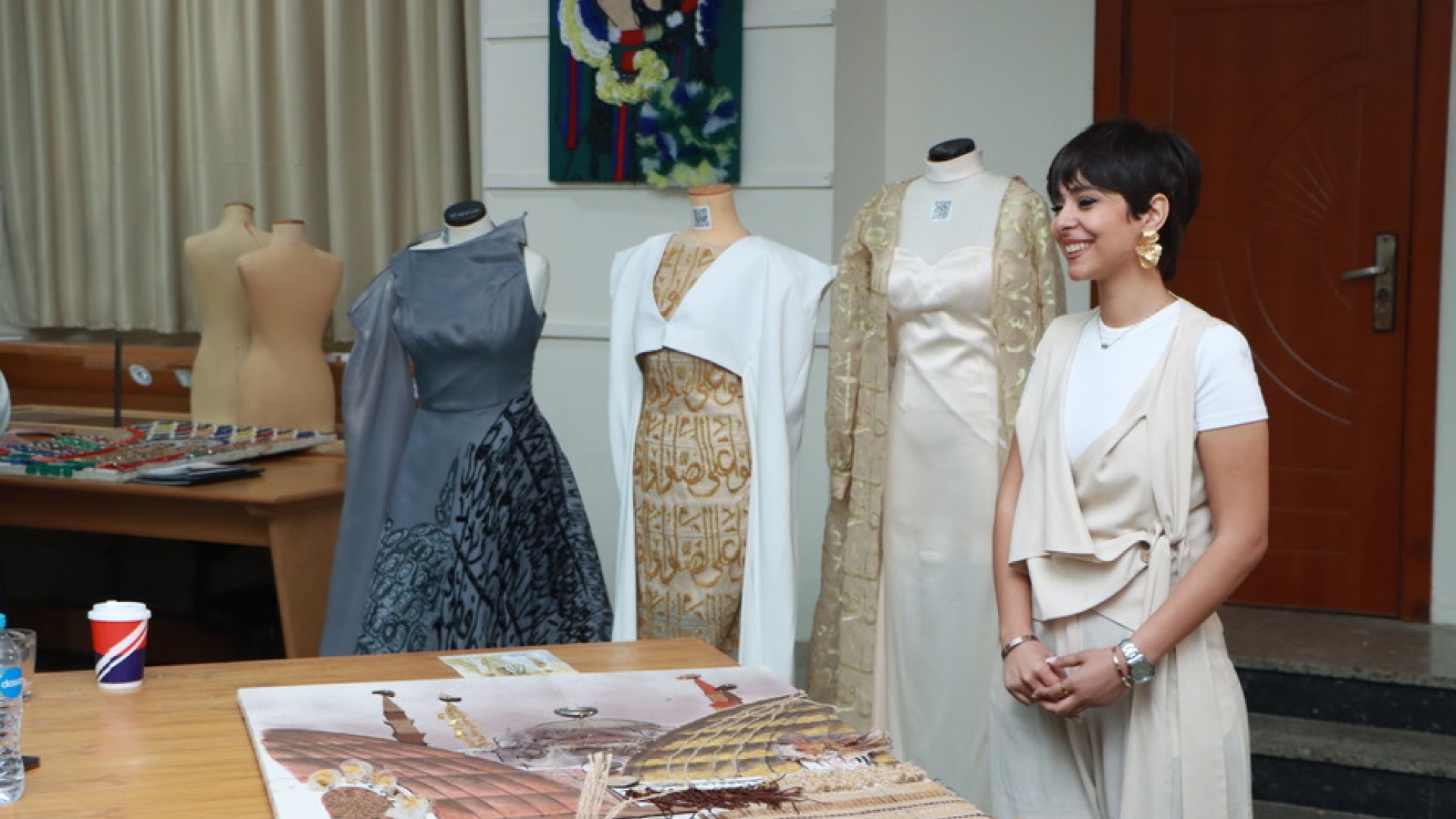A group of experts and specialists from the industry and design professors from Egyptian universities participated in the evaluation of the projects. They praised the advanced thinking and scientific methodology employed in addressing the projects. They also commended the efforts exerted by the students and faculty members to generate innovative ideas that contribute to solving various problems. Furthermore, they recommended the need to present a selection of outstanding projects, which were proposed as innovative solutions to various issues, to the relevant ministries such as the Ministry of Culture and the Ministry of Tourism, as well as to investors. Moreover, they emphasized the importance of utilizing these projects to support the economy and serve the community.
In this context, the graduation projects of the Interior Design department adopted the idea of repurposing and utilizing heritage buildings of historical value to preserve them instead of demolishing them. The aim was to benefit from the state's assets by utilizing these buildings in cultural, tourist, and developmental projects, coinciding with the relocation of several ministries and government agencies to the new administrative capital. Student groups conducted an in-depth study on the reuse of 23 heritage buildings with historical and architectural value in downtown areas, Maadi, Alexandria, and Port Said. The students presented a range of ideas and proposals that approached each building with a different vision in accordance with its value, location, and character, aiming to direct it towards achieving investment benefits that contribute to its preservation and support the national economy. Professor Dr. Soheir Zaki Hawas, Professor of Architecture and Urban Design at Cairo University, and Professor Dr. Heidi Shalby, Deputy Head of the National Committee for Urban Harmony, recommended the presentation of these outstanding projects to the relevant ministries and investors to benefit from the presented ideas.
Examples of buildings for which the projects provided solutions and ideas for revitalization and reuse include:
- Ismail Pasha Al-Muftish Palace in Sayeda Zeinab: A museum to document the history of downtown.
- Bab Al-Louq Market: A commercial market for Egyptian crafts and products.
- Abo Rahab Palace in Al-Manial: A museum and cinema club.
- Kodak Building in downtown: A gallery and museum for photography.
- Al-Bustan Hotel in downtown: A boutique hotel.
- Kebritaj in Helwan: A cultural and entertainment center.
- Villa Marie Munib in Heliopolis: A museum for comedy.
- Janklis Palace in Beheira Governorate: A hotel for agritourism.
- Sabahi Palace in Stanley, Alexandria: An art house.
- Monfratato Agency in Alexandria: A music center.
- The Italian House in Port Said: A museum and cultural center.
On the other hand, the students of the Graphics and Media Arts Department presented a collection of projects that distinguished themselves by keeping up with technological and contemporary advancements, in addition to closely aligning with the needs of the Egyptian market and the state's visions in various fields, as confirmed by the judging committee, composed of professors and experts in the specialization field. The projects presented varied between designing promotional campaigns for products and Egyptian industries in need of revival and the ability to compete globally, such as campaigns for the development of products and crafts related to Egyptian and local heritage. The students also presented awareness campaigns about society and disseminating constructive concepts, such as campaigns about people with disabilities and their capabilities, combating bullying, and women's rights. Other campaigns were about reviving Egyptian heritage and folklore, which are among the most important objectives aligned with the future vision of the state. Alongside campaigns aimed at tourism promotion, including the campaign about the opening of the Grand Egyptian Museum, and promoting specialized festivals for children and cinema. The projects encompassed all designs that serve content, such as printed, visual, and audio advertisements, packaging designs, websites, and multimedia.
The department also presented a number of animated films that carried important messages about various societal issues, such as privacy, anxiety and self-acceptance, combating mental and physical disorders, human rights and freedom, embodying dreams, the role of the family in human development and late marriage, and animal welfare, among others. The films sometimes took a fictional or realistic dramatic approach.
Finally, the department presented several graduation projects in the field of book arts, as visual interpretations inspired by literary works, both Egyptian and international. The students reimagined the artistic designs and illustrations in a contemporary and authentic context.
The Cinema and Theater Design department also presented its projects. Graduation projects represent a model of the students' talents, creativity, and commitment. Recently, we witnessed exceptional graduation projects that revolved around the Sustainable Development Goals (SDGs), and they had a tremendous impact.
The projects presented were wonderful and showcased the students' talents, dedication, and astonishing innovation. We are very proud of their achievements and the positive recognition they received from industry professionals.
Throughout their journey in the projects, the students demonstrated outstanding commitment to the Sustainable Development Goals (SDGs). Their projects addressed various global challenges and highlighted important issues, demonstrating their deep understanding and dedication to creating positive change.
Prominent examples include the cinematic treatment of the novel "Tazkira Tarik Lelqahira" by Dr. Ashraf El Ashmawi, which addressed the Nubian diaspora, loss of identity, and land rights, aligning with SDGs 10, 11, and 16. This project advocated for recognition of Nubians' rights and emphasized the importance of inclusivity and cultural preservation.
Based on the novel "Ezma" by Mohamed Sadek, a unique perspective highlighted Sustainable Development Goal 3: Good Health and Well-being. The journey of the main character portrayed overcoming depression and multiple sclerosis, emphasizing the importance of mental health and personal resilience.
Regarding the cinematic treatment of the novel "Fatah Al-Yaqah Al-Zarqaa" by Amr Abdel Hamid, it presented an impactful approach focusing on Sustainable Development Goal 11: Clean Energy and Gender Equality. The student stressed the importance of empowering women.
The cinematic treatment of the novel "Fi Mamar Al-Feran" by Dr. Ahmed Khaled Tawfik engaged in social discussions about utopia and dystopia, addressing multiple Sustainable Development Goals (1, 2, 3, 4, 5, 6, 7, and 16). This project discussed topics such as poverty eradication, hunger elimination, healthcare, education, gender equality, clean water and sanitation.
As for the Department of Fashion Design, students submitted graduation projects inspired by different civilizations and cultures throughout the ages, and the projects were evaluated by a committee of experts and academics specialized in the field of fashion. Through discussions with students, the arbitration committee referred to the efforts made in implementing graduation projects and that it is considered an addition in the field of fashion, as it follows international fashion trends while taking into account the needs of the local market.
Graduation projects for the year 2023 were presented in the Fashion Department, and they reflected a general character (time travel), in which the sources of inspiration varied from different eras and cultures, and were used in the design of contemporary fashion and jewelry that transports the recipient from ancient times, including aesthetic values, to the current era, including: Islamic architecture in ancient Andalusia, the fashion of the golden age in England, the Ottoman era in Egypt, and decorative units in Indian civilization. The students presented their studies of the local market, taking into account the global economic situation, competitive values in the field of fashion industry, and applying their studies in the implementation of projects by employing Egyptian craft skills such as manual and machine embroidery, printing works, and copper works, which achieves the goals of sustainable development in creating Job opportunities and the elimination of unemployment and poverty.

